Tour Package
Package holidays, popularly known as a tour package or simply the word ‘tour’ in the travel and tourism industry refers either to a package tour escorted or not escorted by the tourist guide.
When we say tour package, it means a pre-arrangement, prepaid trip that combines two or more travel components like airfare, airport transfer, accommodation, and other services . Practically, to define the tour package concept is complex one rather understand.
Holloway defines a tour package as “a total tourism product consisting of transportation from the market area to the destination, accommodation at the destination and recreational activities promoted by the tourists.”
According to Gregorg “a tour package is advertised journey including specific features, arranged and promoted with tour literature by a tour operator and paid for in full by the tourists before starting the tour.”
Technically, a package tour/tour package is a total tourism product as it generally includes transport from the origin place to the destination, accommodation at an en route place or at the destination and other recreational or travel services. These components are purchased by an individual, firm or company called the ‘ tour operator ‘. He combines all the travel components in a package and sells them at all-inclusive prices to the clients.

History of Tour Package
The term ‘tour’ was in vogue as early as 1670. The Britishers traveled to widen their knowledge of the continent, especially to study the culture and social life. This practice was gradually adopted by other lovers of cultural centers.
The result of the process was that many European historic and cultural centers were opened to the British tourist. By the early 1730’s the small fishing resorts around the British coast begin to attract tourists seeking to their diseases by drinking the sea-water or by immersing themselves in it.
The introduction of a rail link between the major centers in 1830, had a profound impact on the pleasure travelers for the first time. Many entrepreneurs began to inspire rail travel by organizing excursions for the public at discounted offers.
However, to ‘the origin of package tour’ the credit goes to Mr. Thomas Cook in 1855 , Cook, extended his business operation to different countries by introducing the first ‘ inclusive tour ‘ to Paris.
Mr. Cook put together all the components of tourism products and sold them as ‘inclusive tour’ to the tourists. His pre-packaged tour inspired other tour organizations in the travel industry to organize similar tours to all parts of the globe.
Most of Cook’s tours were a linear tour i.e., the person went from place to place on a single destination. Basically, Mr. Cook developed the concept of ‘grand tour and escorted tour’, the concept which is still used.
Incidentally, World War II has tremendously developed the package tour concept because of the following reasons:
- Social and Economic Conditions
- Increase in Aircrafts
- Marketing Conditions
- Legal Requirements
- Integration took place.
Today, package tours are a vital segment of the world’s travel and tourism industry. According to WTTC, the package tour sales generate $25 billion annually in the United States, $18 billion in Europe, $19 billion in Britain, and $21 billion in Asia. Today tour sales represented 50 percent of all leisure travel sales and 35 percent of all travel agency revenues.
Types of Tour Packages
A travel agency/tour operator deals with variety of ‘tour packages,’ catering to the diverse needs of tourists such as adventure, beach, architecture, cultural, business, conference, incentive tours, ayurvedic packages, Buddhist, religious, incentive tour, special interest tours, cruise tour group tour, educational tour, heritage, monuments, wildlife lovers, etc. These are broadly classified into five categories :
- Independent Tours
- Escorted Tours
Hosted Tours
- Incentives Travel/Tours
Freedom Tours
Independent tour.
Independent tours are prepared/formulated for those tourists who want to travel independently. The components of such tours are air travel, air transfer, accommodation, travel documents, sightseeing, boat riding, entertainment, and other travel services.
However, in some cases, the tourists are free to purchase every single component separately. Thus, this type of tour provides the tourists considerable freedom to plan the activities according to their own choice.
An independent tour may or may not be an all-inclusive tour. Therefore, tour price varies depending on the type of air travel, air transfer, accommodation and is inclusive of other tour components. The foreign independent travel (FITs) and domestic independent travel (DITs) are examples of an independent tour.
Escorted Tour
When a travel agency includes the services of a well educated and trained tour manager in its package, the tour is called an escorted tour. Basically, escorted tours are meant for those travelers who are planning to visit a foreign country first time.
The escort’s responsibilities and duties are to provide comprehensive information and assistance to the group or individual traveler, at the origin, en route and the destination place. The excursion tours are the example of escorted tours.
A hosted tour means when an agency utilizes the services of another agency at a particular destination. Suppose a group of French tourists is coming to India. When the group arrives in India, they are greeted at the airports by TCI, which assists them in clearing their baggage and transfer them to the hotel.
Their tour-host (TCI) is available to offer device and information about the local attractions and entertainment. Further, when the group arrives at another designation in India, a different travel agency greets them at each tourist spot. Thus, a hosted tour provides the tourists maximum level of pre-arranged and personalized services.
Incentives Travel/Tour
It is a motivational programme or a fully paid holiday which is given to the employees by the enterprises as a reward. Mostly in medium and large-scale companies and usually too distant destinations to spur them in maintaining their track record, to increase output, improve the image and moreover to earn the long period loyalty of the employees.
There are a number of the other packages offered by a tour company such as a custom tour an excursion tour, an adventure, and special interest package tours.
Freedom tours are becoming very popular these days among the working class. These tours are designed as per the choice of tourists. The tourist is free to choose and plan how they want to travel and enjoy their holidays. These types of tours are meant for that kind of people who like to decide how, when, and where to travel.
This tourist may an individual, family, group holidays for families and group travel for business. These tours are promoted and developed by the ORBIT.
Components Of Tour Package
What is to be included in a package tour largely depends and varies from one tour organization to another, or from the one country to another, or from one destination to another and from one market to another market. But there are certain well-defined travel services which always turn a part of a package tour irrespective of the tour operator/travel agency, destination and even the market condition.
If we study and see the package tours offered by Thomas Cook and Sons Ltd., Cox and King Ltd., and other international travel companies, we find that a package tour has two major components. Therefore, a standard package tour has two basic components namely:
- Ground Arrangements
Travel industry experience has shown that the first component, i.e. ‘Travel’ is directly bought by the agency from the principal providers like airlines and transport operators and for ground arrangement, the travel agency management asks the ground operators.
The reason behind buying ground arrangement from a handling agency is that it represents as a ground operator at a particular destination for the numerous tour organizations. Secondly, the price offered by it are much lower than an individual agency obtain. Thirdly, it is very difficult to get credit from the supplier and finally, it ensures professional travel services.
Factor Affecting the Tour Package Formulation
Generally, the business of package tours involves great risk, high breakeven, high-quality product, and competitive prices. Therefore, the tour management requires in-depth tour planning and market survey. However, before a tour is designed the tour manager should take into consideration certain factors which are crucial in the formulation process.
These factors have a profound impact on the tourist’s satisfaction. The main factors are:
- Purpose of Tour
- Choice of Destinations
- Tourist Budget
- Legal Requirement
- Types of Tourist Accommodation
- Tour Period
- Departure and stay information
- Tour price; inflationary condition
- Tour Reference Tools
- Tour Features – political stability
- The relationship between the host and tourist generating nation
Tour Package Design and Selection Process
The quality of a package tour is entirely based on the above factors. Essentially, to design/formulate a travel product, the tour manager has to take the biggest responsibility, intuitiveness, imagination, and innovation coupled with a lot of business activities which range from finding new exotic destinations and planning, organizing or promoting such tour.
The following are the main stages in the tour design and selection process:
1. Initial Research
(i) the destination research.
The decision to develop and formulate a new package is a multi-stage process that involves various positive and negative points/steps. Normally, the idea for a new product comes either from the tour executive within the company due to a review of the questionnaire completed by the previous tour members because of the political, economic and social development in a particular area.
When a tour manager see that a large number of old clients are interested in taking a trip to particular destinations, naturally, those destinations become the nucleus of a new ‘tour concept’.
(ii) Market Research
Since tour package is a complete tourism product, obviously, before formulating/designing this product, market research needs to be analyzed and assessed in a systematic manner. Market research provides us the answer to the following questions:
- What is the size of the tourism market?
- Who are the existing clients?
- Where do they live?
- Who will be their potential buyers?
- Who are their competitors – their strategy and area of business leisure?
- How many tourist ones want to cater?
- What price will the clients accept?
- What facilities are available and required?
- What are the constraints viz., license, permission, finance, restrictions, taxes, and others?
Once we know the basic components of the package tour, distribution channels, market conditions, constraints in the tourism market, we can develop the marketing strategy. It enables the smooth functioning of the agency and also offers a clear picture of the tour programme. Practically, market research is conducted by the private tour companies/ private tourism enterprises in order to penetrate the market.
2. Itinerary Preparation
By itinerary one means the designing of a programme which one wants to sell and it includes destinations, stopping points, number of days and the travel services that are to be included in the programme. Whether it is a lean season or an offseason, escorted or not escorted, consumer-oriented or readymade tour programme, the itinerary is prepared to identify the origin, destinations, stopping points, accommodations, sightseeing and other travel services on travelers’ trip.
3. Handling Agency or Destination Company
The appointment of handling agency not only ensure excellent travel services to the tourist but also make the operation smooth and profitable. It is a matter of great significance as the success of travel business largely depends upon the clients are actually taken care of during the tour.
It is a positive match between the promised services and tourist’s actual experiences or feelings. Thus, the tour operator should consider the experience of the handling travel agency in the business, the area of operation, reputation, credibility, professional staff, credit facilities and the competitive price in appointing a handling agency.
4. Negotiation
It is another important management decision area in tour designing and planning. Once the decision has been made regarding the destination’s concerning their date, duration and number of clients to be carried during the trip, the tour management starts negotiations with the principals’ suppliers for a normal contract.
Negotiation means talk between the travel companies and the principal suppliers for the terms, conditions, and prices of the components of a tour package. When both parties are satisfied, it leads to a formal or informal contract between them. The tour company negotiates with the following tour vendors/suppliers:
- Accommodation
- Transport Operations- Rail and Road
- Ground Operators
- Cruise Companies
- Car Rental Companies
- The overseas representatives
- Ancillary Service Organizations
5. Coasting and Pricing a Package Tour
The cost of a package tour encompasses the air ticket, the hotel room, car rental, entertainment charges, administrative costs, promotional costs, and other travel services. The confidential tariff helps the travel company in preparing the cost sheet which will enable the concern to determine its price strategy.
Tour pricing is a big factor in the success of the company’s tour programme. The price of a package tour is, whether it is an escorted, independent or hosted the tour, often lower than the combined costs of the same components purchased separately from the principals. However, the purchase price of a travel product is based on three factors: Cost, competition, and demand.
Every tour package sold by a vendor has a quantifiable cost. To produce profit the price paid by the tourists must be greater than the agency’s cost.
6. Tour Brochure
The tour package is an intangible product which has to be purchased by the tourists/clients without inspection and sometimes even without adequate knowledge. In these circumstances, the brochure becomes the principal instrument to perform the major tasks to inform the clients about the products and to pursue them to purchase it.
Designing, printing, and distributions of tour brochures require necessary skills and knowledge about the components of the tour package. Basically, in the era of specialization and intense competition, tour brochure creates awareness and provides the description of the holiday programme.
Thus, tour management should consider various pros and cons while preparing a tour brochure. A brochure should contain the following information:
- Name of the Travel Company
- Means of transport
- Details about destinations
- Accommodation, types, location, meals
- Name of the overseas representative
- Duration of each tour
- Booking, reservation and cancellation conditions
- Details of other services – insurance, currency, entertainmentTravel documents required
- Details of price
7. Development of Reservation System
The next step in tour formulation process is reservation system. The agency management in order to put a package into operation must develop and implement a scientific reservation system. The system depends on whether the reservation is to be handled manually or with a computer working on the distribution method.
Whatever method the agency may adopt, the agency management should always keep in mind the sole objective of the reservation system.
8. Marketing of Tour Package
Once a tour package is ready, travel agency management has to make a careful decision regarding promotion and marketing of the particular package tour. The basic objective of management is to make a tour package widely known to make it more and more attractive.
To achieve these objectives, the management must consider the budget available, promotion mix, potential market, easiest and most effective media, campaigning through the international, regional or the public/private sector etc.
The promotion of a package tour means increasing its sales potential and creating an awareness of the existing and potential markets. The following methods are commonly used to promote package tours:
- Middlemen – Retail Travel Agents, GSA, consolidators
- Familiarization tours
- Building Brand Loyalty
- Encouraging Potential Buyers
- Competitive Market
9. Tour Handling/Actual Tour Operation
After the successful marketing and achieving target sales, the next and final step in the process of tour designing is tour handling. It means an actual operation of tours, which generally includes administrative work and passenger handling like maintaining reservations, handling deposits, sending advice to ground operators, arranging travel representation, analyzing the feedback received from clients/escorts/ground operator and so on.
All this is not an easy task. At every stage, one has to face different types of queries and problems due to lack of coordination and communication.
Significances of Tour Package
Tour package is beneficial to travel companies, travelers, destinations and other organizations which are directly or indirectly involved in the tourism business. The main benefits are:
- Increase the seasonality of a destination cost/price
- Earn foreign currency
- Better quality of products professional services
- Wide-variety of the tour package
- Provide bulk business to organizers
Understanding Package Tours in the Travel Industry
In the vibrant world of travel and tourism, a package tour is a pre-arranged holiday that combines a variety of travel services into one comprehensive package. These services typically include transportation, accommodation, meals, guided tours, and other amenities. Package tours are popular among travelers seeking convenience, affordability, and a stress-free vacation experience. Let's delve deeper into the concept of package tours and explore the key components that make them a preferred choice for many globetrotters.
Components of a Package Tour
A typical package tour includes several key components that are carefully curated to provide travelers with a seamless and enjoyable vacation experience. These components may vary depending on the destination, duration, and theme of the tour, but the following are some common elements found in most package tours:
- Transportation: Package tours often include round-trip transportation from the traveler's home to the destination. This may involve flights, train tickets, bus transfers, or other modes of transportation.
- Accommodation: Accommodation is a crucial part of any package tour. Travelers are typically provided with pre-booked hotel rooms, resorts, or other types of lodging that meet the tour's standards and budget.
- Meals: Many package tours include meal plans that cover breakfast, lunch, and dinner. These meals may be served at the hotel, local restaurants, or as part of guided tours.
- Guided Tours: To enhance the travel experience, package tours often include guided tours of popular attractions, historical sites, cultural landmarks, and other points of interest. Knowledgeable guides provide valuable insights and ensure that travelers make the most of their visit.
- Activities and Excursions: Depending on the tour package, travelers may have the opportunity to participate in various activities and excursions such as adventure sports, sightseeing tours, shopping trips, and cultural experiences.
- Transportation Within Destination: Package tours may also include transportation within the destination, such as airport transfers, shuttle services, or private vehicles for sightseeing.
- Travel Insurance: Some package tours offer optional or mandatory travel insurance to protect travelers against unforeseen circumstances such as trip cancellations, medical emergencies, or lost luggage.
Types of Package Tours
Package tours come in a variety of forms to cater to different preferences, budgets, and travel styles. Here are some common types of package tours that travelers can choose from:
- All-Inclusive Tours: These tours cover all major expenses, including transportation, accommodation, meals, activities, and sometimes even gratuities. Travelers can enjoy a hassle-free vacation without worrying about additional costs.
- Adventure Tours: Adventure tours are designed for thrill-seekers and outdoor enthusiasts who enjoy activities such as hiking, trekking, rafting, and wildlife safaris. These tours often include adrenaline-pumping experiences in exotic locations.
- Cultural Tours: Cultural tours focus on exploring the history, art, cuisine, and traditions of a destination. Travelers have the opportunity to immerse themselves in the local culture through visits to museums, historical sites, festivals, and interactions with residents.
- Luxury Tours: Luxury tours offer a premium travel experience with upscale accommodation, fine dining, exclusive amenities, and personalized services. These tours cater to travelers seeking a high level of comfort and sophistication.
- Group Tours: Group tours bring together a group of like-minded travelers who share a common interest in exploring a particular destination. These tours offer camaraderie, shared experiences, and the opportunity to make new friends along the way.
- Customized Tours: Some travel companies offer customized package tours that allow travelers to tailor the itinerary, activities, and accommodations to suit their preferences. This option is ideal for travelers looking for a personalized and flexible travel experience.
Benefits of Package Tours
Package tours offer several benefits that make them an attractive choice for travelers looking for a hassle-free and enjoyable vacation experience. Some of the key benefits of opting for a package tour include:
- Convenience: Package tours take the stress out of travel planning by bundling all essential services into one comprehensive package. Travelers can relax and enjoy their vacation without worrying about making individual arrangements for transportation, accommodation, and activities.
- Affordability: Package tours often provide cost savings compared to booking each component separately. Travel companies can negotiate discounted rates with airlines, hotels, and attractions, enabling travelers to enjoy a budget-friendly vacation without compromising on quality.
- Expertise: Package tours are curated by travel experts who have in-depth knowledge of the destination, local attractions, and cultural nuances. Travelers benefit from the expertise of guides and tour operators who ensure a well-rounded and enriching travel experience.
- Safety and Security: Traveling with a reputable tour company offers an added layer of safety and security. Tour operators have emergency protocols in place, experienced guides to assist travelers, and 24/7 support to address any unforeseen issues that may arise during the trip.
- Time-Saving: Package tours are designed to maximize the traveler's time by providing a well-structured itinerary with carefully planned activities and sightseeing opportunities. Travelers can make the most of their vacation without wasting time on logistics or decision-making.
- Local Insights: Guided tours included in package tours offer valuable insights into the destination's history, culture, and traditions. Travelers have the opportunity to learn from local experts and gain a deeper understanding of the places they visit.
Package tours are a popular choice for travelers seeking a convenient, affordable, and enriching vacation experience. By bundling transportation, accommodation, meals, guided tours, and other services into one comprehensive package, travelers can enjoy a stress-free journey with expert guidance and local insights. Whether you prefer adventure tours, cultural experiences, luxury getaways, or customized itineraries, there is a package tour to suit every taste and budget. So, the next time you plan your dream vacation, consider the benefits of a package tour and embark on a memorable journey filled with unforgettable experiences.
- Up to 7-Day Itineraries
- Maps Integration
- PDF Downloads
- Standard support
- Everything in Basic Plan and
- Up to 14-Day Itineraries
- Personalized packing lists
- Additional itinerary details (hotels, transportation, travel requirements, local sayings, etc.)
- Ad-free experience
$3 / month or $30 / year (Save $6)
€2.76 / month or €27.60 / year (Save €5.52) £2.37 / month or £23.70 / year (Save £4.74) ₹249.00 / month or ₹2,490.00 / year (Save ₹498.00)
- Everything in Plus Plan and
- Up to 30-Day Itineraries See Example
- Smartest AI with latest updates
- Private Itineraries
$5 / month or $50 / year (Save $10)
€4.60 / month or €46.00 / year (Save €9.20) £3.95 / month or £39.50 / year (Save £7.90) ₹415.00 / month or ₹4,150.00 / year (Save ₹830.00)
"This is super cool. I did three days in a relatively small town, and it came up with a nice sounding trip (relaxation focused)."
- Redditor StillKickinginAZ
"This is incredible"
- Jenny Turner
"This is so awesome! We hired a travel agent for $200 and your AI just spit out almost exactly the same itinerary the agent planned for our honeymoon in Greece!"
Share Itinerary

The incredible package tourism industry- made SIMPLE
Disclaimer: Some posts on Tourism Teacher may contain affiliate links. If you appreciate this content, you can show your support by making a purchase through these links or by buying me a coffee . Thank you for your support!
Package tourism is an important component of tourism . The package holiday market has boomed in the past couple of decades, and although people are not choosing to book their package holidays in quite the same way nowadays, package tourism is here to stay.
So what is package tourism and what does it mean for the face of the tourism industry? In this article we take a look at this important part of the tourism industry .
What is package tourism?
The history of package tourism, major package tourism tour operators, types of package tourism, benefits of package tourism, disadvantages of package tourism, the death of the package holiday, further reading.

Package tourism is when elements of a holiday are grouped together and sold as a package by a tour operator at an inclusive price. Typically, a package holiday will include the three core elements of; transport (e.g. flights), transfer (e.g. coach or car) and accommodation (e.g. hotel).
Package tourism is traditionally associated with the production of mass, standardised holidays, for example beach holidays to Europe . However, in recent times tour operators have been promoting a wider range of package holidays that facilitate niche tourism and allow for tourists to design their own personalised tour packages.
The growth and development of package tourism is largely down to one (famous) name in travel and tourism – Thomas Cook. Thomas Cook wasn’t just a company- there was a face behind the name!
In 1841 Thomas Cook organised the first package holiday as we know it today. It may have only been a short trip between Leicester and Loughborough, but it was revolutionary in terms of the growth and development of tourism industry. In the proceeding years, Cook took many tourists on similar trips, which were becoming more varied and exotic. Increases in disposable income, having paid time off work, an increasing desire to explore new destinations and significant developments in transport and technology meant that Cook’s business grew and grew. You can read a detailed account of the history of Thomas Cook here.
In the years that followed, other tour operators and travel companies opened up, hoping to offer services similar to Thomas Cook, whilst many succeeded in doing so, none were ever real contenders for the package tourism giant. In 1990 the EU Package Travel Directive was introduced, offering protection to travellers in the case of a tour-operator or airline failure and by the mid 1990’s more than half of all holidays taken by UK citizens were package holidays.
Package tourism was an easy way to book a holiday. It wasn’t until the growth of the Internet that package tourism started to decline in popularity. The advent of Web 2.0 meant that tourists could now do their own research about their holidays and they no longer had to rely on the advice of a travel agent and for a tour operator to package together their trip for them. The growth of travel blogs, comparison websites and online travel agents all contributed to the gradually decline in the number of tourists booking package holidays.
Whilst package holidays do continue to be sold around the world, many of them are now known as dynamic packages, whereby the tourist selects the elements of the package and puts it together themselves, with the assistance of an operator, usually an online travel agent.

There are many different travel and tourism companies around the world that provide package tourism services and package holidays.
Up until 2019, Thomas Cook and TUI were the two major market players in the package tourism business. The companies held a duopoly, meaning that they were the two major companies that dominated the package tourism market and therefore had most of the business. However, in 2019 Thomas Cook ceased trading, leaving a monopoly- TUI remains to be the major market leader in package tourism.
However, there are also other companies that offer package tourism products. These include:
- Independent tour operators
- Online tour operators
- Niche tourism tour operators
Traditionally, package tourism is based on a holiday to a beach destination that includes a flight, transfer and hotel room. You can have all-inclusive package holidays, half-board package holidays and self-catering package holidays.
Travel agents will also often try to sell the tourist extra services in addition to the core package, known as ancillary products and services. This could include insurance, tickets to tourist attractions , car hire etc.
Nowadays, there are more options for package holidays than a sun, sea and sand holiday. For example, I booked a package tour when I went to the Galapagos Islands for my honeymoon! This tour included nights in 3 different hotels, multiple flights and a cruise- it certainly wasn’t your traditional package holiday! With the growth in popularity of holidays that are a little bit different (known as niche tourism), many tour operators are now offering bespoke, tailor made package holidays to suit the needs of their customers.
Another popular way to book a package holiday is on the Internet. Many tourists will choose to use on online tour operator to book their package holiday. There are plenty of companies that offer this, such as Expedia, On The Beach and easyJet.
Package tourism has been a popular type of tourism for many years, and for good reason!
Package tourism is easy and convenient for the tourist. There is no need to do any research, no need to research flight times or bus timetables and no need to do anything before departure except for packing your suitcase! Prior to the 2000s, this was perfect for many people. However, with the growth of the Internet, many people felt that they no longer needed this help and that they could now research and book these elements of their holiday themselves.
Package tourism is often cheaper than other forms of tourism. This is based on the basic rule of supply and demand- tour operators, using the traditional Fordist model of mass production, create standardised package holidays in bulk. Because they are putting together a large number of holidays, they are able to offer them at a cheaper price to consumers.
Booking a package holiday typically comes with added protection, at least within the EU anyway. ATOL and ABTA are two major organisations that provide insurance and legal security for tourists. Most package holidays are covered by these organisations.

There are also disadvantages of package tourism. One of the major disadvantages is that that package holidays often have few economic benefits of tourism to the local destination, especially if the package encompasses an all-inclusive hotel . This is because much of the money paid by the tourist will be retained by the tour operator and other foreign organisations- this is an example of economic leakage in tourism . This is a negative impact that hinders the ability for sustainable tourism to take place.
Another major disadvantage of package tourism is the association that package tourism has with mass tourism . Because package holidays are typically mass produced, the result is large amounts of tourists all visiting the same place often at the same time. This causes many problems, from environmental degradation to negative social impacts of tourism and more.
From the tourists’ perspective, package tourism isn’t always the best type of tourism either. This is because it is not personal and it is not (usually) tailored to the needs of the specific tourist. In recent years we have seen consumer desires change- people want to see new things and explore new places outside of what the traditional package holiday model typically offers. People are more interested in niche tourism than ever before. Whilst there are some packages that cater for this, this often comes at an expense for the tourist and it isn’t so easy to come by.
Many people have suggested in recent years that package holidays are dying, heck- the collapse of Thomas Cook told us that was probably the case! However, I disagree with this, yes- the traditional package holiday is dying, people are less interested in sun, sea and sand holidays than before, but there is most certainly still a market for package holidays, they just look a bit different nowadays!
Many people are opting to book dynamic packages. This is when the tourist can select their own elements of a package (i.e. which flight they prefer, which hotel they like the look of) and combine them together to create a package. People tend to prefer this because they can tailor their holidays to better suit their needs and requirements, yet still have the ease and protection that comes with booking a package holiday. Many people don’t realise that they are booking a package holiday when they book their holiday through websites such as Expedia or easyJet, but in fact, they are!
Alongside this, niche holidays are also growing in demand. A person may be interested in painting or diving, for example, but they don’t know where the best place to go for their specific interest is or how to organise their trip. This is where a niche tourism tour operator comes in, who can develop a package for them.
If you enjoyed reading this article, I am sure that you will love these too!
- Types of travel agents
- What is a tour operator and how does it work?
- Association of Independent Tour Operators: Purpose and responsibilities
- Are airlines the new tour operator? Dynamic packaging in aviation
Liked this article? Click to share!
Welcome to Lake
Discover places to stay and unique experiences around the world.
- How It Works
Home - Blog - How to Make Tour Packages: Your Step-by-Step Guide
How to Make Tour Packages: Your Step-by-Step Guide

David Ciccarelli
January 19, 2024
In this article
Get started.

In today’s digital world, mastering how to make tour packages has become fundamental for tour operators seeking to grow their business. Recognizing the shift towards online bookings, offering an array of compelling tour packages enables potential guests to weigh their options effortlessly, seeking out the best experiences that align with their interests and budget. Tour packages that provide convenience and value not only stand out in the crowded market but also pave the way for stronger revenue streams and memorable experiences for your clientele.
Understanding what to include in tour packages can be daunting, but with a systematic approach, you can assemble offers that guests find irresistible. Whether it’s a tranquil getaway or an adventure-packed excursion, the right combination of elements in your tour package can make the decision-making process a breeze for travelers, resulting in satisfied customers and repeat business for you.
How to Make Tour Packages: Crafting Exceptional Experiences
Wondering how to elevate your travel offerings? Maybe you’ve pondered what makes some tour packages stand out in a crowded market. Good news, your quest ends here!
- Online Bookings – Hassle-free, secure reservation at your fingertips.
- Flexible Pricing – Deals that adapt to budgets and seasons .
- Outstanding Support – We’re here for you, every step of the way.
Remember, the ultimate tour experience is just a click away. Ready to transform your travel game?
Identifying Your Tour Package Audience

When forming tour packages, it’s crucial to consider who your offer will attract. Are you targeting:
- Adventure enthusiasts who crave excitement?
- Cultural aficionados in pursuit of enriching experiences?
- Couples on a romantic getaway?
- Individuals seeking the luxury of high-end travel?
- The older demographic preferring relaxed travel?
- Lone voyagers on a quest for solitude?
- Families with young children requiring kid-friendly activities?
Essentials of Tour Packages
When planning your getaway , what features do you expect a tour package to include? A powerful tour offering isn’t just about the destinations; it’s about forging a personal connection, ensuring that you feel the value and the excitement long before the journey begins.
Consider these key elements:
- Age Suitability : Is this adventure tailored for you or your family’s age group?
- Value : Does the pricing reflect the experiences offered, giving you the best bang for your buck?
- Accommodations : What type of lodging is included, if any? Comfort? Luxury?
- Duration : How many days of pure bliss or heart – pounding adventure can you expect?
- Activities & Partners : Are you looking for a single activity or a melange of experiences? Are respected companies involved?
- Tour Type : Are there options for the thrill-seeker, history buff, or family-friendly explorer?
The Importance of a Package Tour
Ever felt like you need a vacation from planning a vacation? Package tours swoop in as the hero, offering the sweet relief of convenience. Imagine simply showing up, with transportation, accommodations , and meals all set. Switch to vacation mode quicker, without the nitty-gritty of travel planning.
Why do travelers adore package tours? Here’s the scoop:
- Time Saver: No more endless searching for hotels or comparing flight prices. More time for you, less for logistics.
- All-Inclusive Experience: From your comfy hotel bed to that sunset cruise, it’s all wrapped up in one neat bundle.
- Increased Value: Worry less about costs adding up. The overall value of a package often outweighs individual bookings.
- Reduced Cancellations: Commit to fun! Secured plans mean you’re less likely to back out last minute.
- Community Vibes: Booking packages that partner with local businesses can inject a feel-good factor into your trip.
Remember, a calculated package deal can translate to significant savings for you while simultaneously lining the pockets of tourism businesses with healthy profits. It’s a win-win in the world of travel. Ready to pack your bags yet?
Key Elements of a Packaged Tour

- Duration & Schedule : Your adventure, lasting from a day trip to extended stays , will have a well-defined timeline.
- Transportation & Accommodation : From flights to coaches, and hotels to unique lodgings, your journey’s comfort and convenience are considered.
- Guided or Self-Explored : Choose between having a knowledgeable guide or discovering the sights at your own pace.
- Included Activities : Adrenaline-pumping sports, tranquil cultural experiences, and exclusive events await.
- Group Size : Whether it’s cozy small groups or larger gatherings, your travel package adapts.
- Equipment & Extras : Necessary gear and potential add-ons enhance your experience without the hassle.
- Insurance Options : Ensure peace of mind with optional travel insurance for those ‘just in case’ moments.
Remember, ongoing offers and discounts can sweeten the deal of your travel package.
Crafting Your Ideal Tour Experience: A Guided Framework
Scouting the tour landscape.
Begin your tour-creating journey by examining the offerings within your industry and locality. To craft a tour that resonates with your target audience, consider:
- The unique aspects of your specific area and expertise.
- How your tour can differentiate itself within the marketplace.
Knowing what your competitors are doing is crucial; ensure your offerings incorporate distinctive elements that elevate your tour above others.
Timing is Everything
Designing a tour requires careful planning around duration and scheduling, knowing the ebb and flow of your business operations. Consider:
- The frequency of departures.
- The feasible duration of the tour for an enjoyable guest experience.
Every aspect of your tour’s timing should contribute to both your guests’ satisfaction and your business’s viability.
Tailoring the Tour Experience
Give your guests autonomy with a map and let them personalize the trip with optional add-ons. The customizations could include:
- Exclusive access to particular attractions.
- Tailored equipment rentals for a seamless adventure.
Empowering guests to tailor their experience can heighten the appeal of your tour package.
Price Point Strategies
Attracting groups through discounted rates could be a wise approach. When setting your prices, consider:
- Pricing structures that work best for your business model.
- Offering incentives for larger group bookings to maximize profitability.
Well-thought-out pricing can be the key to a successful tour package that appeals to a wide audience.
Visual Vividness
Use compelling photos and videos to showcase the allure of your tour packages. Keep in mind:
- Including images that allow potential guests to envision themselves on the tour.
- Highlighting exhilarating moments and picturesque scenery in your promotional material.
Visuals play a pivotal role in captivating your audience and can significantly boost your marketing efforts.
Collaborative Local Alliances
Partnering with other local operators can broaden your package’s appeal. Integrating complimentary activities offers your guests:
- Added convenience.
- A richer, more diverse travel experience.
These alliances not only benefit the guest but can also generate repeat business for your enterprise.
Amplifying Your Tours
Let the unique selling points of your offerings shine in your promotional efforts. Aim to:
- Emphasize the unique experiences only your tour package can provide.
- Convey the value and convenience of opting for a pre-arranged package over separate bookings.
Effective promotion involves highlighting the unique benefits that come with your tour package, contributing to an effortless and memorable vacation for your guests.
Remember, as a tour operator, you have the power to shape extraordinary travel memories. Each step you take to refine your tour package bolsters your guests’ experience, ensuring that each adventure is not just a trip but a story worth telling.
Finding Strategic Partners to Expand Your Tour Offerings

Looking to broaden the scope of your tour packages? Consider joining forces with local accommodations, top-notch restaurants, and other experience providers who align with your business ethos. Let’s say you run a travel agency and want to offer an all-encompassing experience – imagine pairing your thrilling city tours with a cozy bed-and-breakfast and the finest dining in town.
- Travel Agents : Tap into their network and offer your packages to a wider audience.
- Online Travel Agents (OTAs) : Increase your digital footprint and customer reach.
- Local Businesses : Collaborate for cross-promotion; think hotels offering your tour brochures in their lobbies.
- Wholesalers : They can package your tours with other services for a greater value proposition.
Final Thoughts
Crafting tour packages that resonate with travelers.
If you’re keen on curating tour packages that truly resonate with what travelers desire, consider your approach to content marketing . What makes your offerings gleam against a backdrop of options? It’s about more than presenting tours; it’s about narrating an experience that aligns with your audience’s travel fantasies.
Promotion must-haves :
- Regular website updates with engaging content
- Strategic marketing tools & campaigns
- SEO optimization to appear on Google search results
Sales Boosters :
- An easy-to-navigate booking system
- Package variations to encourage repeat bookings
Discover Versatile Reservation Tools
Ever found yourself swamped with managing bookings and wish there was a simpler way? Meet today’s top-tier online booking systems that are winning over businesses with their ease of use and seamless integration capabilities.
- Instant Efficiency : With a click, manage your reservations.
- Streamlined Services : Simplifies your booking process , effortlessly.
- Flexible Features : Adapts to your unique business needs.
Statistics show that businesses utilizing advanced reservation systems see a significant increase in bookings , often by as much as 20%.
Essential Components for a Captivating Tour Itinerary
Key items to include in your tour itinerary.
To capture the interest of travelers, your tour itinerary should be comprehensive and engaging. Essential elements include:
- Compelling Descriptions : Paint a vivid picture of the destinations to stir excitement.
- Varied Activities : Cater to different interests with a mix of cultural, recreational, and relaxing options.
- Clear Timelines : Provide a well-structured timeline that outlines the daily schedule while allowing for some flexibility.
- Logistical Details : Include information on transportation, meeting points, and accommodation options.
Tactics for Effective Marketing of Travel Packages
Harness various marketing strategies to attract travelers:
- Leverage Social Proof : Display reviews and testimonials as evidence of satisfied customers.
- Engage Through Storytelling : Share stories and experiences from past travelers to build a connection.
- Utilize Visual Content : High-quality images and videos can be powerful in showcasing your packages.
Innovative Promotion Methods for Tour Packages
To reach a broader audience, get creative with your promotions:
- Collaborations : Team up with influencers or local businesses to tap into new networks.
- Exclusive Events : Host webinars or live Q&A sessions to engage potential customers.
- Contests and Giveaways : Encourage sharing and participation for increased visibility.
Constructing a Package Tour That Captivates
When designing your package tour, consider the following steps:
- Define Your Audience : Know who you are designing the tour for.
- Curate Unique Experiences : Differentiate your offering with unique experiences.
- Price Competitively : Position your pricing based on the value offered.
- Pay Attention to Detail : Every component, from meals to activity duration, adds value.
Building Stand-Out Packages in the Travel Market
Travel agents aiming to excel in the market should focus on:
- Personalization : Offer customizable options so clients can tailor their experience.
- Diverse Offerings : Appeal to various niches like adventure travel or eco-tourism.
- Professional Touch : Present the packages in a high-quality, informative brochure.
Calculating Tour Package Costs Effectively
When pricing your tour packages, be mindful of:
- All-Inclusive Costs : Consider all expenses from transportation to entry fees.
- Profit Margin : Set a margin that reflects the quality of the experience while remaining competitive.

administrator
David Ciccarelli, is the Founder and CEO of Lake. He is based in Toronto, Canada, and is an expert in management, business administration, strategy, product development, and customer experience. His educational achievements include the Owner President Management Program at Harvard Business School (2019-2022) and the QuantumShift Program at Ivey Business School in 2017, aimed at CEOs of growing businesses.
- Tour Packages
Related Posts

October 29, 2023
Preparing Your Vacation Rental for Emergency Situations
While not expected, emergency situations may arise at your vacation rental. As such,...
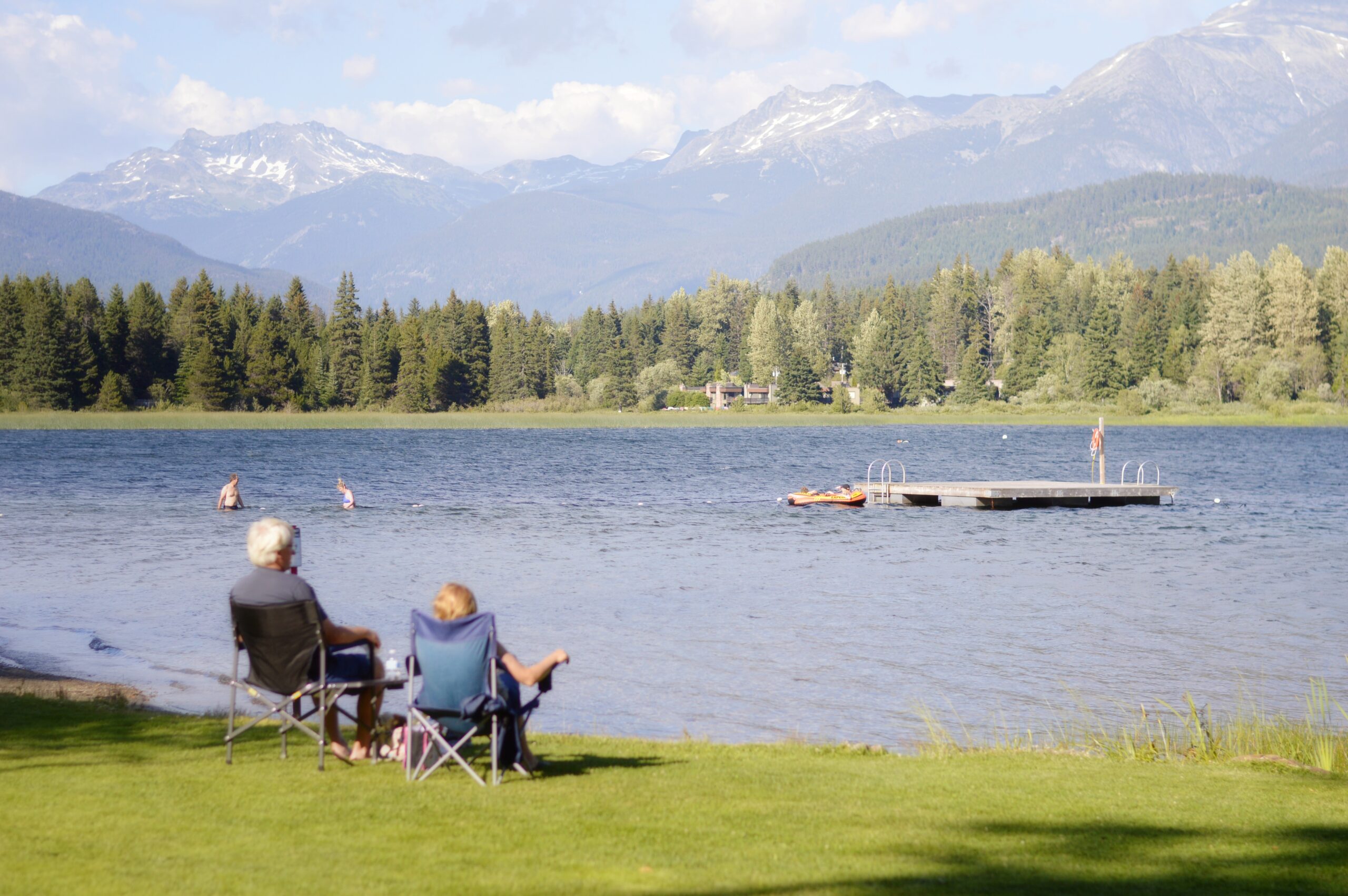
December 21, 2023
Vacation Rental Pricing Tools: Optimize Your Income with Smart Strategies
Striking the right balance with your Airbnb listing price can be a puzzling game. Are your...
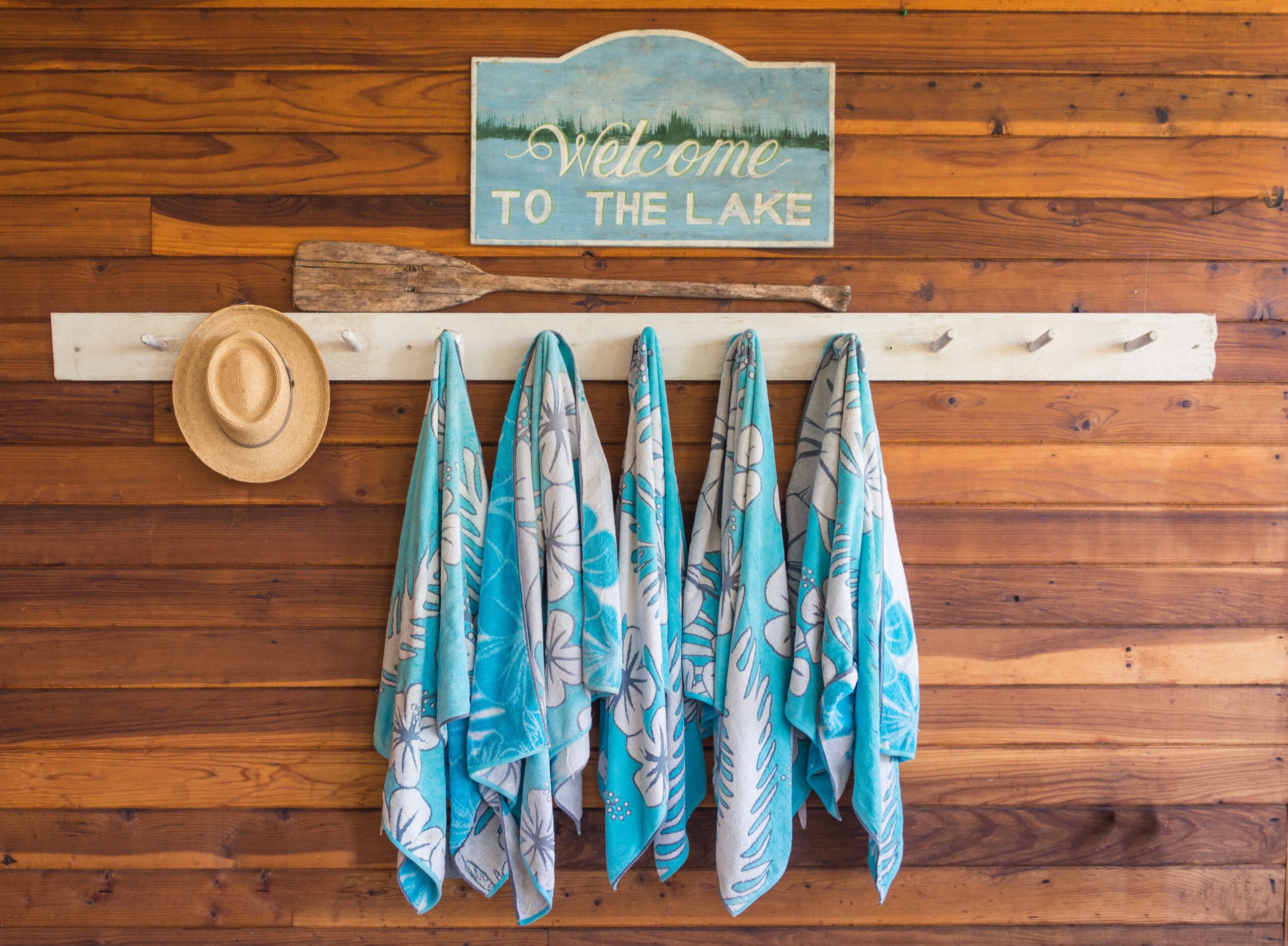
January 3, 2024
Vacation Rental Welcome Book: Crafting the Perfect Welcome for Guests
Thinking of hosting your lake house on Lake? Here is everything you need to know to create...
Don't have an account yet? Register
Already have an account? Sign In
Reset Password
Please enter your username or email address, you will receive a link to create a new password via email.

How to Create and Promote Amazing Tour Packages

Table of Contents
As a tour operator, finding new ways to improve your customers’ experience while also increasing profitability for your business should always be top of mind. A great way to attract more customers and increase your tour bookings is to offer tour packages. By creating and selling travel packages, you’re addressing the needs of a specific type of traveler, one who is looking for a fuller travel experience with the added benefits of convenience and savings.
Today we’ll be discussing the benefits of tour packages, how to effectively create and sell your own travel package, and how Rezgo’s tour packaging system can help.
What Are Tour Packages?
Tour packages are a combination of separate (but typically related) tourism products and services that are presented and sold as one. Customers pay for all the components of a tour package and receive details of their itinerary prior to travel. A typical tour package example is one that includes travel to and from the destination, accommodation, meal arrangements, and activities or excursions.
Tour Package Example
As with this example, when people think of tour packages, they often think of packages that include services from multiple vendors. Tour packages can, however, consist of offerings from a single tour provider. Rezgo’s tour packaging system is designed to help you create and promote travel packages of your own tour products, but also offer resellers the option to package services from multiple tour businesses as well.
What Are The Benefits Of Tour Packages?
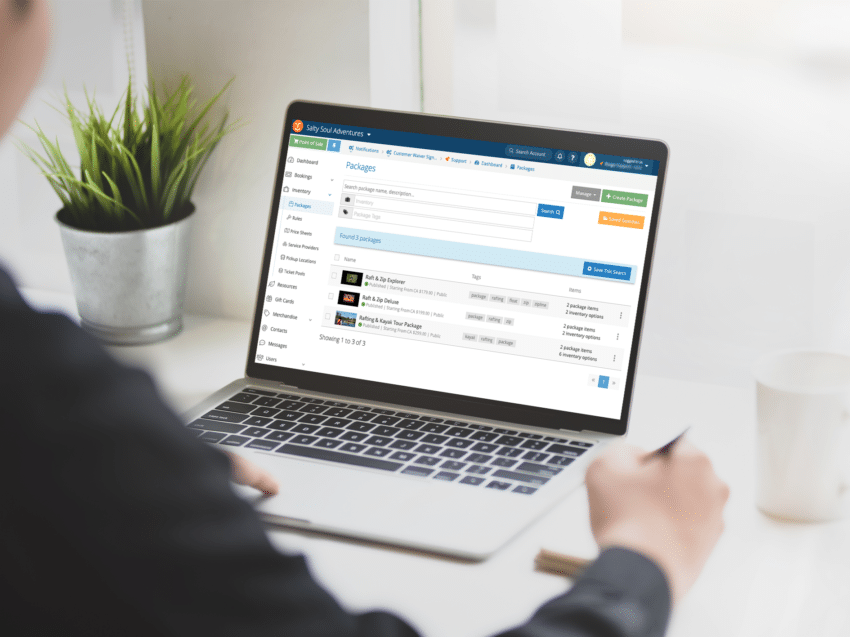
Opinions regarding the benefits of tour packages versus purchasing various travel components on your own vary with each traveller. To create and market the best tour package possible, it’s important to understand what customers are looking for in a travel package.
Benefits of Tour Packages
- Convenience – Purchasing a tour package that includes multiple services or experiences in one saves customers the time and energy needed to locate and research them individually. Travelers who prefer tour packages tend to like to avoid the work involved with booking each travel component separately.
- Cost Savings – It’s expected that customers enjoy cost savings when booking a tour package. Tour operators will often provide discounts or special rates for purchasing multiple tour products or services.
- Security / Reassurance – Booking a tour package put together by a tour operator and that has been vetted by other travelers provides customers with a sense of security and reassurance.
Equally important is to be aware of why some customers would prefer to plan their vacation on their own. Understanding the concerns and wants of these travelers can potentially help create a tour package that addresses their concerns and converts them into bookings.
Benefits of Planning Your Own Trip

- Flexibility – Planning a tour experience on your own provides some additional flexibility. Customers are not bound to any constraints that may be present when booking a tour package.
- Options – Sometimes not all travel or tour options are presented when browsing tour packages. Customers may feel like their options are being artificially limited by the tour operator’s preferences or reach.
- Individualized Experience – Customers who want to customize their trip and have an authentic experience tend to avoid booking tour packages over concerns of receiving a limited, tourist-centric experience.
What Kind Of Customers Enjoy Tour Packages?
Now that we’ve gone through the benefits of tour packages versus the benefits of planning a trip on your own, we can begin to understand the kinds of customers who enjoy tour packages. Above all, travellers drawn to trip packages are looking for the convenience and cost savings associated with them. They aren’t concerned about customizing every detail of their trip and are happy to entrust their experience to the tour operator or company. Tour package customers are attracted to the ease and hassle-free booking process and want the best deal possible.
Creating A Great Tour Package

Taking what we know about our audience and what they look for when purchasing a tour package, we can implement strategies that will help us create fantastic trip packages of our own. With Rezgo’s tour packaging system, you’re able to group or combine various tour products together and offer them at a discount that is both attractive to the customer and profitable for your business. What you choose to group and how you decide to package them is up to you. You have the freedom to package travel arrangements to and from your destination, pair up your activities with equipment rentals, or even group multiple experiences together for a multi-day excursion. Need some inspiration for your tour packages? Check out these innovative tourism business ideas !
Remember, customers browsing travel packages for their trip are looking for convenience and freedom from having to handle all the little details. Whatever you choose to include in your tour package, make sure that you’re making it as streamlined and stress-free an experience as possible. Include as many relevant details in your tour package descriptions and preemptively answer questions that your customers might have regarding what is or isn’t included. Highlight the benefits of your tour package when compared to an individual tour and include details about discounts or deals. Customers should feel like once they book your trip package, all that’s left for them to do is enjoy their amazing vacation.
How to Market and Promote Your Tour Package

While there are definitely a few different factors to consider when marketing and promoting tour packages versus an individual tour, the fundamentals remain the same. To successfully market your tour package you need to first understand your target market or audience. That is, who are you selling your tour package to? You can then begin to build a marketing strategy aligned with the needs and wants of your target audience. As mentioned earlier, travellers expect discounts when booking travel packages so be sure to carefully consider your tour package costing so as to provide a great deal for your customer while keeping your business profitable and sustainable.
For an in-depth look at effectively selling your tour package, we suggest checking out our post on how to promote tour packages online and familiarising yourself with the 7 Ps of travel and tourism marketing .
Closing Thoughts
Tour packages are a great way to combine and sell your tour products and services in a way that is attractive to your customers and profitable to your business. By understanding the benefits of a tour package over individually booking tours and addressing the needs of your target audience, you’re able to effectively create, market, and promote your own travel packages.
We’re excited for you to try out our new tour packaging system and look forward to seeing all the amazing tour packages you build for your business!
What should be included in tour packages?
Include transportation , accommodations, meals, guided tours, and activities. Detail what’s covered and any extra costs.
What is the difference between a tour package and an itinerary?
A tour package bundles services for one price. An itinerary outlines trip details but doesn’t include bookings.
Should my tour package have add-ons?
Yes, offer add-ons for customization. It enhances the experience and meets diverse traveller preferences.

Written By | Edward Nieh
Edward Nieh is a freelance writer and copy editor working across multiple mediums for clients from various industries. He has a degree in creative writing with a focus on screenwriting for feature films.
Previous Article Private tours are a growing trend in 2024. Are you ready?
Next Article 10 Creative Ways to Expand Your Tour Business (Without Breaking the Bank)
Related Posts

Articles , Increase Online Bookings , Tourism Trends
17 innovative tourism business ideas and trends for 2024.
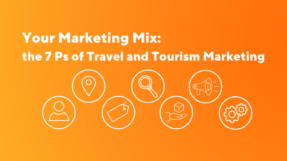
Articles , Increase Online Bookings , Marketing Strategies
Your marketing mix: the 7 ps of travel and tourism marketing.
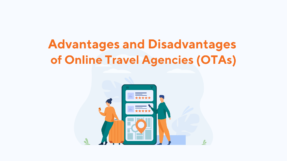
Articles , Increase Online Bookings , Tourism Best Practices
Advantages and disadvantages of online travel agencies (otas), search the blog.
- All Categories
- Increase Online Bookings
Most Popular Articles
- Your Marketing Mix: the 7 Ps of Travel and Tourism Marketing 169 views
- 17 Innovative Tourism Business Ideas and Trends for 2024 123 views
- Advantages and Disadvantages of Online Travel Agencies (OTAs) 94 views
- How to Create and Promote Amazing Tour Packages 14 views
- How to Create a Business Plan for Your Tour or Travel Company 14 views
I have read and agree to the Rezgo Privacy Policy
GET STARTED
Sign-up for a free demo.
Lorem ipsum dolor sit amet, consectetur adipiscing elit, sed do eiusmo tempor incididunt ut labore et dolore magna aliqua.
Schedule A Demo
The Complete Guide to Building a Tour Package

Modern travelers expect a great travel experience while saving money. As a travel agent, you can exceed these expectations by offering personalized tour packages.
Why Create a Tour Package?
Tour packages allow you to combine more products and services into a single offering. Creating a customized tour package will increase your revenue, and your clients will get better value for money and a personalized travel experience. Unique tour packages can also make your travel business stand out from competitors. Find out more useful Tips for Increasing Sales in a Travel Agency.
5 Steps to Building a Tour Package
Unique and professional-looking tour packages are massively in demand. Every client will have their own needs and preferences, and travel agents need to be able to nimbly adjust their offerings accordingly. With the rise of personalized travel, a high-quality tour package builder is a must for every agent. Creating an individual tour package for each client can take substantial time and effort. A trip builder module simplifies the process, giving you more time to invest in growing your travel business. Learn how to build a high-value tour package with TripMatrix Software in 5 easy steps.
1. Identify the Customer’s Needs
The first and most crucial step is to identify the customer’s needs. If you get this right at the beginning, your tour package will need fewer adjustments later. Knowing your clients also gives you good pointers on what to focus on while researching. The key information to know about your clients:
- Number of travelers
- Budget range
- Duration of the trip
- Accommodation preferences
- Transportation and transfer needs
- Type of trip (family vacation, team building, romantic getaway, etc.)
Use the given information to establish a better relationship with your clients. Taking an individual approach and showing interest in their needs will signal that you care about them. You will also have to spend less time researching trip options with a more targeted approach. Understand the client’s needs and concentrate on building a customized tour package that will exceed their expectations.
2. Research Trip Options
After identifying the customer’s needs, the next step is researching the best trip options. Research is the most time-consuming activity for every travel agent, especially if you don’t have an established network of key partnerships within the travel industry. Even if you are already collaborating, you should always look for unique experiences to diversify your offer. Small travel agents can find it hard to connect with other businesses, but TripMatrix Marketplace allows you to easily collaborate with big and small service providers. Whether you are on a hunt for a themed guided tour, luxury hotel, or safe transportation option, you can find trusted new potential partners within TripMatrix Marketplace, which will provide a unique local experience.
3. Build a Trip and Create an Offer
Once you have picked out the best trip options, you are ready to build a trip and create an offer. Beforehand, make sure to upload your products and services. You can create and edit products and services effortlessly with TripMatrix Inventory Management; you only need to select the correct category (accommodation, transportation, experience, etc.), add images, and create descriptions. You can even pull images and descriptions directly from Google to save time. After you have selected transportation, accommodation, and activities for a tour package, start designing an in-depth trip plan. TripMatrix’s trip builder module enables tour agents to include a route planner and a full itinerary. Finally, add the price and profit margins for each service and product (visible only to you). Read more about using a TripMatrix Trip Builder in our blog Trip Planner Software for Travel Agencies.
4. Offer Modifications
Forget about downloading your offer in PDF documents, you can simply send all tour packages created in TripMatrix via a custom link. Clients can click on the route planner connected to Google Maps and scroll through the hotel photos, and an interactive itinerary will give them a better idea of their trip. In most cases, personalized tour packages demand more effort. The good news is that with TripMatrix trip builder, you can always modify your tour packages following clients’ feedback. Each product, service, and tour package is stored in the Cloud, so you won’t have to worry about losing any data. Communicate with the client in a direct chat and find out if there is room for improvement. Offer modifications can be done directly inside the itinerary, allowing prospects to see changes immediately. You can always update an existing offer if you have a client interested in a similar tour package. Each previous offer can be a starting point for a new client with similar needs.

5. Payment Processing and Commission Distribution
Once your client is satisfied with their personalized tour package, they can complete payment directly within the TripMatrix platform. TripMatrix’s high-quality online booking experience provides secure payment and also allows the travel agent to have access to each client’s payment processing. You can see the confirmation directly within the software when the client finalizes payment. If your client hasn’t completed their online booking, you can follow up to get more information. Since TripMatrix includes automated payment processing, commission distribution, and refunds, you can manage the whole payment process inside the platform.
Individualized tour packages are beneficial for both travel agents and travelers. While travel agents can increase revenue and establish strong partnerships, travelers can get a better value for money and get the most out of their travel experience. Before researching and building a tour package, it is crucial to identify your customer’s needs. Get to know your client; understanding them will make your part of the work easier. Also, showing interest in their needs will help you create better trips and improve customer experience. Research trip options and extend your offerings with TripMatrix Marketplace. Find partners to complete and upgrade your tour packages. After you create a tour package in the trip builder, you can easily make modifications. When your tour package is done, track payment within the platform. Want to start building professional-looking tour packages that will increase your revenue? Send us an inquiry and become a part of the TripMatrix community.
Recent posts

Streamline Your Travel Agency Operations with TripMatrix
In the bustling world of travel agencies, efficiency is key. The ability to seamlessly manage customers, craft detailed itineraries, oversee product [...]

Elevating Your Travel Agency with Smart Marketing and SaaS Solutions in 2024
In an era where the online travel industry is more competitive than ever, standing out requires more than just offering the best deals or exotic locat [...]

Effective Strategies for Managing Travel Agency Contacts and Accounts with TripMatrix
Effective contact and account management is crucial for maintaining a competitive edge in the highly competitive world of travel agencies. As the trav [...]
How to Create a Tour Package in 6 Simple Steps
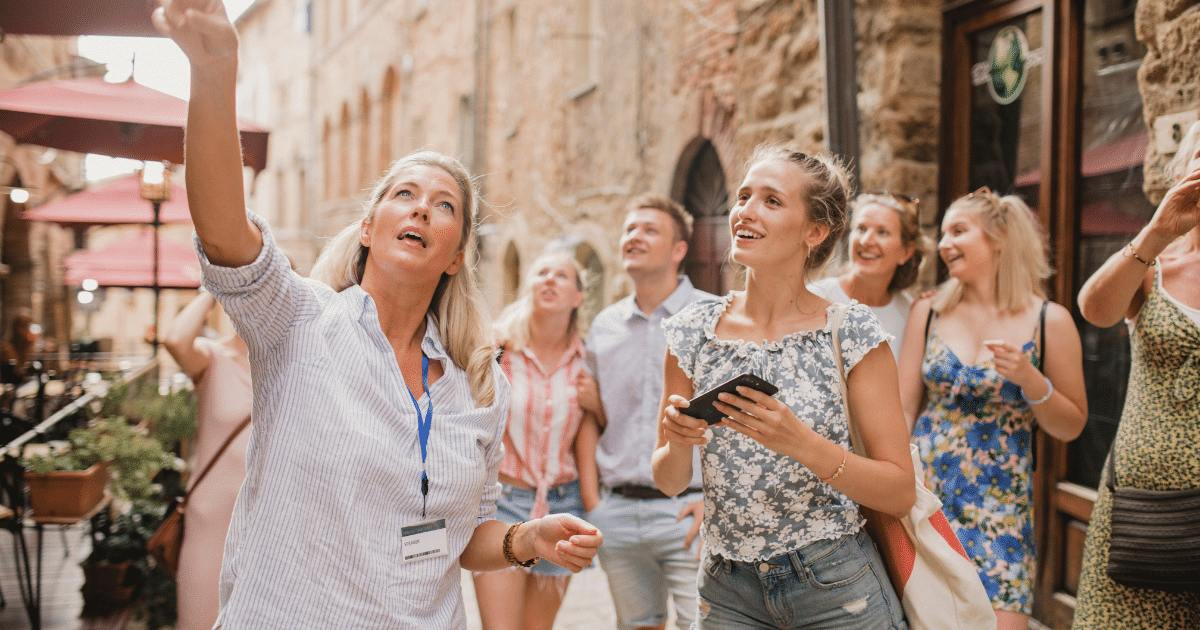
By Rezdy — 26 Nov 2018
distribution marketing operations tour operator
Updated April 2022 – As a tour company, you may be seeking effective ways on how to create a tour package that’s enticing for your customers. A packaged tour combines elements that would be a hassle to coordinate separately, such as transport, attractions, meals, and entertainment. With the ease of a tour package, these elements can be easily bought as one and provides convenience for your customers.
Travelers looking for a hassle-free trip usually seek an all-inclusive tour package. It’s an enticing product to promote and include within your marketing strategy and can help you boost your bookings. Most travelers would usually seek a travel agency to provide them with the best packages. However, if you could set up tour packages yourself, you may be able to attract customers to book packages through you directly.
What do customers look for in a tour package?
When understanding the first steps on how to create a tour package, you need to understand your target audience. What is it that they prioritize? Is it affordable airfare? Easy car rental? Flexible cancellation policies? or a particular destination that can cater for their entire trip? Understanding your target audience is key to building enticing tour packages.
Once you’ve nailed your tourism market research, make it easy for your website visitor to identify the different types of tours you offer.
Points to outline in your descriptions should include:
- Types of tours (day tours, adventure tours, family-friendly getaways, group tours, sightseeing, etc.)
- The estimated total cost and budget per guest or booking
- The total duration of the vacation package
- The different travel products included (transportation, tours, activities, etc)
- Age range. Are there any age limitations?
The price of your products should be set 12 months in advance, and it should include all your costs – product development, entry and guide fees, meals, maintenance, and marketing.
If you want to partner with other travel companies (which you totally should), make sure that
- Everyone has a good profit margin but is still able to provide competitive prices
- You have allowed for unexpected costs
- You have determined product break-even points
It would also be smart to ask everyone involved to promote and sell the package.
If you want to reduce your package price, remember not to compromise quality. It should be your last option. Consider other strategies that will make your tours more competitive.
2. Commission

Depending on the market you’re targeting, you will need to consider the commission you pay your agents. It differs from 10-30% depending on the type of agent involved.
If your market is overseas, you’ll likely be dealing with inbound tour providers, and they will expect a commission of 25-30%.
Want to learn more about agent commission rates and how to calculate commission breakdowns? Click here .
3. Legal Implications
When creating a tour package, you need to provide explicit conditions of the sale of the tour package in order to avoid any confusion. Tour wholesalers and retail travel agents must:
- Provide explicit conditions of sale
- Be selective with product endorsements
You don’t want to be involved in a customer complaint about your failure to deliver or misleading advertising.
It’s recommended that you work closely with a lawyer in order to develop the right language for your tour package. Since travel agents will need these legal conditions in place before they can resell your product, it’s best you have your terms and conditions prepared before promoting your tour packages.
4. Travel packages & promotion
How you distribute your package will determine your success. You should conduct product and package familiarisations for retail agents, wholesalers, and sample target markets.
Packaging for overseas:
Contact distributors who understand international packages and markets. You may not even need to create a package, because the international tour operator may bundle a range of products, including yours, for a wholesaler. Remember to screen your overseas resellers, too.
Packaging for domestic markets:
Trialing domestic markets before going international is probably the safer option when first starting out. It’s a more cost-effective and less complicated option.
You can start by targeting the following groups:
- Clubs and associations members (particularly those that cater to retirees)
- Schools and educational institutions (if your product has educational content, create an excursion package)
- Families (they will want the value for money)
Testing the waters within your local travel industry will also generally produce faster results.
Remember to include special interest groups and individuals in your marketing – for example, sports, festivals, and arts.
5. Complementary Product Packaging
Partnering with other tour operators who offer complementary products is a smart way to reduce your promotion costs while making your package more appealing.
For example, you can offer:
- A range of products from an area to specific niches with related interests
- A selection of products in a destination where a customer can create personalized experiences

Last, but certainly not least, is timing. When you set your availability, remember to consider your high season and the popular time of year that your target markets come by. Sometimes, however, tour packages can be the perfect answer to your off-peak season too.
The return on your investment will be gradual, so don’t expect an immediate return. Profits can take up to 2-3 years but can be achieved earlier if you get your distribution strategy right.
You can do things to speed up the process, like choose online booking software that allows agents to check your availability and book immediately. Make sure it isn’t commission-based so it doesn’t eat into your profits.
Curious to see how you can organize your tour packages with Rezdy? Start your FREE 21-day trial or request a demo today.
If you enjoyed this article – 6 ways to package tourism products – then follow the Rezdy blog . There are a lot of marketing tools and resources designed with businesses like yours in mind.
Start your free trial today
Enjoy 21 days to take a look around and see if we are a good fit for your business.

Vaxications: How to tap into the industry’s pent-up travel demand

Guide to growing a charter boat business: 12 tips for operators

How to sell tours online & get more bookings
- To save this word, you'll need to log in. Log In
package tour
Definition of package tour
Examples of package tour in a sentence.
These examples are programmatically compiled from various online sources to illustrate current usage of the word 'package tour.' Any opinions expressed in the examples do not represent those of Merriam-Webster or its editors. Send us feedback about these examples.
Dictionary Entries Near package tour
package store
Cite this Entry
“Package tour.” Merriam-Webster.com Dictionary , Merriam-Webster, https://www.merriam-webster.com/dictionary/package%20tour. Accessed 19 Jun. 2024.
Subscribe to America's largest dictionary and get thousands more definitions and advanced search—ad free!

Can you solve 4 words at once?
Word of the day.
See Definitions and Examples »
Get Word of the Day daily email!
Popular in Grammar & Usage
Plural and possessive names: a guide, more commonly misspelled words, your vs. you're: how to use them correctly, every letter is silent, sometimes: a-z list of examples, more commonly mispronounced words, popular in wordplay, 8 words for lesser-known musical instruments, birds say the darndest things, 10 words from taylor swift songs (merriam's version), 10 scrabble words without any vowels, 12 more bird names that sound like insults (and sometimes are), games & quizzes.

Package, Tour or FIT: Defining the Packaged Travel Market
- ASTA Members save $200—log in to the ASTA Web site for details and to order.
- European , Financial , Global and Technology Edition subscribers save $200:

What is Open Access
An Open Access subscription provides company-wide access to the whole library of Phocuswright’s travel research and data visualization.
Curious? Contact our team to learn more:
What is open access+.
With Open Access+, your company gets access to Phocuswright's full travel research library and data visualization PLUS Special Project deliverables.
Provide your information and we'll contact you:
Curious contact our team to learn more:, more research insights.

Popular Keywords
No Record Found
Upcoming Free Events
The ctc®, a management program for travel professionals, the ctie, a leadership program for travel executives.
Certification Programs
Free Events
Scholarships towards certification from the travel institute, cta® test prep webinar, free specialization events, specialization – finding your travel industry niche.

- October 20, 2020
Back to Basics: Components of a Tour
All month, we’ve been highlighting basic concepts from various areas of travel. This week, we’re considering the building blocks of successful tours and FITs.
Tours require the combined skills and resources of many people. What do they consider in choosing the components of the tour, and how are the pieces put together?
For a thorough examination of this topic, we suggest you enroll in The Travel Institute’s Travel Introductory Program, the TRIPKit® . But, today, we are taking a quick snapshot of the all-important components of a tour.
If you were developing a tour, what would you include? Obviously, the answer depends on the intended market. Some tours offer a minimum of elements; others are all-inclusive. Let’s take a look at some options:
- Transportation. Most tours include transportation as part of the package. A fly/drive package combines air transportation and a car rental. An air/sea or fly/cruise combines air and ship transportation; a rail tour includes transportation by train; a motor coach tour uses buses to carry tour participants from destination to destination to visit major attractions. Many tours also include transfers to and from airports, hotels, and rail stations.
- Itineraries. Tours tend to use one of three types of itineraries: — A circle itinerary brings travelers back to their starting point via a different route. Passengers experience varied sights and places throughout, without retracing their steps. This approach suits tours that aim to cover a broad area, such as “Highlights of Central Europe.” — An open-jaw itinerary begins and ends in different places. For example, a “Highlights of Italy” tour might visit Milan, Venice, Florence, Pisa, and Rome, without returning to Milan. This type of itinerary works well when returning to the starting point would mean retracing steps or visiting less-desirable locations. — A hub-and-spoke itinerary is an increasingly popular approach. Travelers set up their base at a hotel in one city for several days and take day trips into the surrounding area, thus avoiding packing, unpacking and moving baggage. They also might spend one night away from the home base. The hub-and-spoke approach allows travelers to explore a region in depth. For example, on a “Highlights of France” tour, travelers might be based in Paris and take day trips to the numerous sights within striking distance of the City of Light, such as Versailles or Giverny.
- Accommodations. Proximity to sightseeing attractions, transfer services, parking for the motor coach, and accessibility for travelers with disabilities may all be important in selecting hotels for a tour. Hosted and independent packages usually offer participants a choice among several hotels in different price ranges. On escorted tours, participants stay together at a hotel.
- Meals. Tour operators can cut costs substantially by requiring tour participants to pay for their own meals or by adjusting the kind of meals offered. A tour operator that includes five dinners and five lunches is offering more than an operator that includes 10 breakfasts. A tour operator that permits an unlimited choice from the menu (à la carte) is offering more than an operator that arranges a set menu or limited choice. Meals plans are detailed in the TRIPKit and can be as varied as the tour itself.
- Sightseeing. Tours usually include some attractions that are standard tourist draws, such as Walt Disney World Resort, Busch Gardens Tampa Bay, and Universal Orlando Resort in Florida. On an independent or a hosted tour, travelers generally receive sightseeing vouchers and admission tickets ahead of time or pick them up at the first stop on their trip. On an escorted tour, attractions might be added during the tour, depending on the interests of the group.
- Other Components. The fare for some tours includes services—such as baggage handling—or covers tips, service charges, or taxes. Some tours offer additional amenities, such as flight bags, free drinks, or gifts.
- Price. Whatever the components of a tour, travelers are likely to weigh them against its price. A small percentage of tours are quoted per couple (the most obvious are honeymoon packages). But the majority of prices are given per person, double occupancy , meaning that each person pays this price when sharing a room with another. Single occupancy prices are higher, sometimes much higher; the additional price paid by a person traveling alone is called the single supplement . A few tours try to find a roommate for a traveler who does not wish to pay the single rate. When the tour operator will not guarantee a roommate, the traveler may have to pay the single supplement, often referred to as a forced single .
All of these moving parts require careful planning. And that emphasizes, once again, the incredible value and worth you bring to the table every time you work with a client!
Recent Hot Tip Tuesday's

From One to Many: How You Can Pay It Forward

Using Emotional Intelligence to Build Better Relationships

Hot Tip Tuesday Newsletter

- 945 Concord St, Framingham, MA 01701
- 800.542.4282
- [email protected]
- Terms and Conditions
- Privacy Policy
quick links
©2024 the travel institute, all rights reserved.

Hot Tip Tuesday Newsletter Signup
Package tourism
- Living reference work entry
- First Online: 01 January 2015
- Cite this living reference work entry

- Nevenka Čavlek 3
361 Accesses
Package tourism is formed when several tourists travel in an organized way by using pre-arranged services. It is produced, marketed, and sold by commercial tourism companies (tour operators/wholesalers) at an inclusive price. Package tourism was initially based on the mass production of standardized inclusive tours offered to tourists searching for sun, sand, sea, and sex holidays at competitive prices. The related term “ mass tourism ” sometimes carries negative connotations, even though it is based on the simple motivational premise that mass tourism’s positive offerings are predicated on matching the touristic desire for safety with the comfort zone of familiarity.
Evolution of the concept and practice
Official data on the global economic scale of package tourism are incomplete. Often based on different forms of assessment, in many cases the statistics significantly understate reality. As a result, misconceptions occur when trying to understand mass and other forms of tourism....
This is a preview of subscription content, log in via an institution to check access.
Access this chapter
Institutional subscriptions
Aramberri, J. 2010 Modern Mass Tourism. Bingley: Emerald.
Google Scholar
Buhalis, D. 2000 Relationships in the Distribution Channel of Tourism: Conflicts between Hoteliers and Tour Operators in the Mediterranean Region. International Journal of Hospitality and Tourism Administration 1:113-139.
Article Google Scholar
Čavlek, N. 2013 Travel and Tourism Intermediaries: Their Changing Role. In Handbook of Tourism Economics: Analysis, New Application and Case Studies, C. Tisdell, ed., pp.191-206. Singapore: World Scientific.
Holloway, J. 1998 The Business of Tourism. Harlow: Longman.
Mundt, J. 1993 Reiseveranstaltung. Munich: Oldenburg Verlag.
Sheldon, P. 1986 The Tour Operator Industry: An Analysis. Annals of Tourism Research 13:349-365.
Download references
Author information
Authors and affiliations.
Department of Tourism, The Faculty of Economics & Business, University of Zagreb, Zagreb, Croatia
Nevenka Čavlek
You can also search for this author in PubMed Google Scholar
Corresponding author
Correspondence to Nevenka Čavlek .
Editor information
Editors and affiliations.
School of Hospitality Leadership, University of Wisconsin-Stout, Menomonie, Wisconsin, USA
Jafar Jafari
School of Hotel and Tourism Management, The Hong Kong Polytechnic University, Hong Kong, Hong Kong SAR
Honggen Xiao
Rights and permissions
Reprints and permissions
Copyright information
© 2014 Springer International Publishing Switzerland
About this entry
Cite this entry.
Čavlek, N. (2014). Package tourism. In: Jafari, J., Xiao, H. (eds) Encyclopedia of Tourism. Springer, Cham. https://doi.org/10.1007/978-3-319-01669-6_423-1
Download citation
DOI : https://doi.org/10.1007/978-3-319-01669-6_423-1
Received : 15 September 2014
Accepted : 15 September 2014
Published : 16 September 2015
Publisher Name : Springer, Cham
Online ISBN : 978-3-319-01669-6
eBook Packages : Springer Reference Business and Management Reference Module Humanities and Social Sciences Reference Module Business, Economics and Social Sciences
- Publish with us
Policies and ethics
- Find a journal
- Track your research

What Does a Tour Package Include? Essential Components Explained
When planning a trip, it can be challenging to organize all the necessary details, including accommodation, transportation, meals, and activities. This is where a tour package comes in handy, as it includes all these elements in one convenient package. This blog post will explain what a tour package entails, the available types, and how to choose the right one.
Table of Contents
What does a tour package include?
- Accommodation: A tour package typically includes accommodation in a hotel, resort, or other lodging facilities. The type of accommodation provided will depend on the tour package you select.
- Transportation: Transportation is another essential component of a tour package. It can include flights, trains, buses, and even private cars or vans. The mode of transportation provided will depend on the tour package you select.
- Meals: Most tour packages include breakfast only to all-inclusive dining. The number and type of meals provided will depend on the tour package you select.
- Activities: A tour package may include various activities such as sightseeing, cultural experiences, adventure sports, or shopping. The type and number of activities included will depend on your selected tour package.
- Itinerary: A tour package will provide you with a detailed itinerary of your trip, including the date, time, and location of each activity, as well as any free time you may have.
Types of tour packages
- Inclusive tour package: This type of tour package includes accommodation, transportation, meals, and activities, all for a fixed price.
- All-inclusive travel package: This tour package is similar to the inclusive package, but it also includes drinks, tips, and other extras.
- Budget tour package: This package is designed for those who want to travel on a tight budget. It usually includes basic accommodation and transportation but limited activities and meals.
- Customized tour package: This package allows you to choose the specific activities and accommodations you want, giving you more control over your travel experience.
- Luxury tour package: This tour package provides premium accommodation, transportation, meals, and activities for a higher price.
How to choose the right tour package?
Choosing the right tour package can be a daunting task, but here are some tips to help you make the best decision:
- Budget: Determine your budget and look for tour packages that fit within it. Remember that a higher price may mean better quality, but finding a balance between affordability and quality is essential.
- Destination: Consider the destination you want to visit and choose a tour package that offers the best experience in that location. Look for packages that include the attractions you want to see and the activities you want to do.
- Travel Style: Think about your travel style and the type of experience you want. Do you prefer a leisurely vacation or an adventure-packed trip? Make sure to choose a tour package that aligns with your travel style.
- Reviews and recommendations: Read reviews and ask for recommendations from friends or family who have traveled with a tour package before. This can give you insight into the tour package’s quality and other travelers’ experiences.
In conclusion, choosing a tour package can make travel planning more manageable and less stressful. With various tour packages available, selecting the one that aligns with your budget, destination, travel style, and preferences is crucial. When selecting a tour package, read reviews and consider recommendations from other travelers. By following these tips, you can have a stress-free and enjoyable travel experience.
Similar Posts
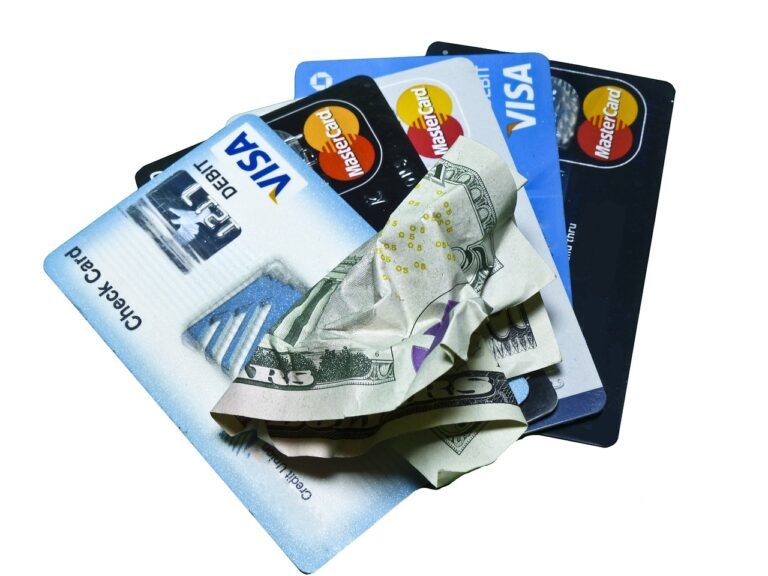
How travel credit cards work and How To Use Them Wisely
The Basics of Travel Credit Cards: How They Work and How To Use Them Wisely Photo by TechPhotoGal on…
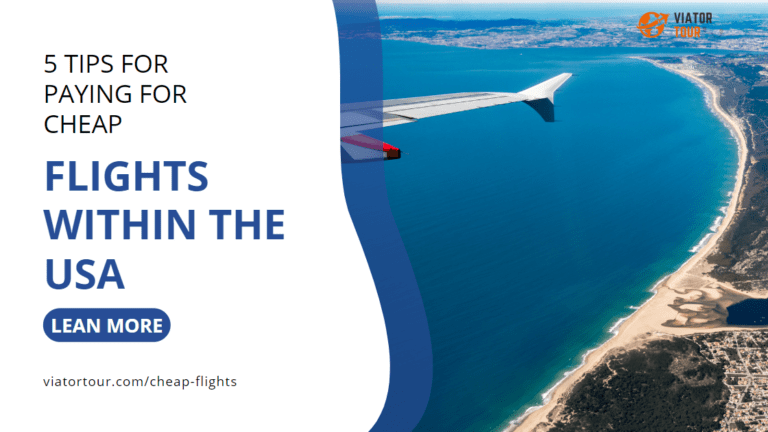
5 Tips for Paying for Cheap Flights Within the USA
Many travelers see domestic flights as something that is out of reach. After all, who wants to pay for…
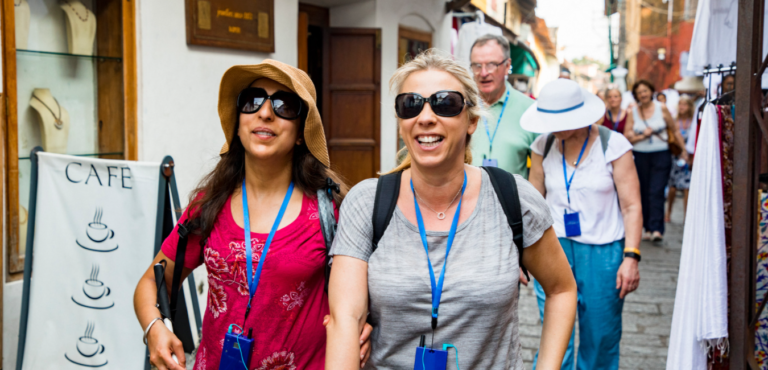
My Daily Travel Blog To Inspire And Get You Motivated!
The joy of traveling knows that you can go anywhere and everywhere — as long as you have the…
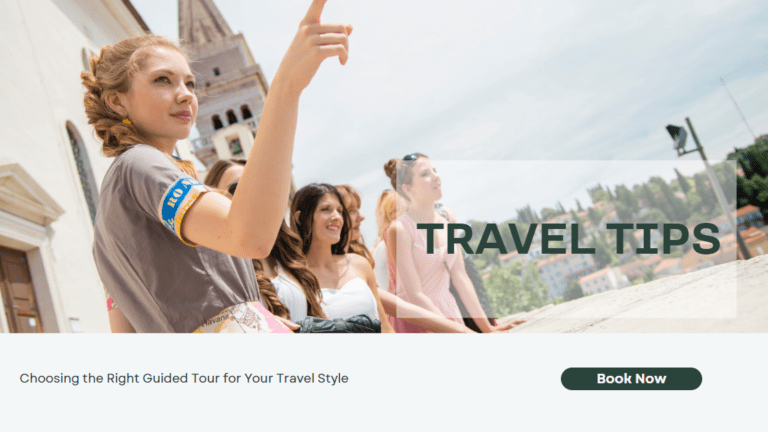
Choosing the Right Guided Tour for Your Travel Style
Step-by-Step Guide: How to Choose the Right Guided Tour for You When choosing a guided tour, you must consider…

Is it Cheaper to Pre-Book Excursions? Tips for Cost-Effective Travel
Traveling to different destinations can be a great way to explore new cultures, meet new people, and experience unforgettable…


What is Tour Cost? Components, Types of Tour Costs
- Post last modified: 19 January 2023
- Reading time: 21 mins read
- Post category: Uncategorized
What is Tour Cost?
Tour cost means the total cost incurred or attributed to a tour product or service. It is the sum total of costs incurred to create or formulate a tour package. Since tour is an assembled product, its costing involves bulk purchase.
Therefore the cost of the tour packages is determined according to the client requirement or company strategy. As the quality of the product /service and the price of that product go side by side, hence in travel trade the cost unit is a package tour because a company sells a large number of packages.
Table of Content
- 0.1 What is Tour Cost?
- 1.1 Research and Development Cost
- 1.2 Travel Cost
- 1.3 Accommodation Cost
- 1.4 Food and Beverage Cost
- 1.5 Sightseeing and Activity Cost
- 1.6 Marketing Cost
- 1.7 Administrative Cost
- 1.8 Miscellaneous Costs
- 2.1 Direct costs
- 2.2 Indirect tour costs
- 2.3 Fixed costs
The identification of cost unit will help to cost manager to separate the cost into smaller sub-divisions attributable to the tourism industry. A tour package is a combination of various tourism services/ goods like transport, accommodation and other facilities en route and at the destination.
However, in reality, it has only two basic components;
- Travel services
- Ground services.
Components of Tour Cost
The cost of a tour package includes:
Research and Development Cost
It is the cost incurred when planning a tour package. It includes the cost of the tour planner, manager and staff of the company who are involved in tour planning. The main activities in the research and planning phase are:
- Study the economic factors influencing the future development of package tours.
- Identification of likely selection of destinations.
- Make an in-depth comparison of alternative destinations.
These phases require in-depth research work and hence this requires a good amount of money. The tour planner, marketing researchers etc have to work rigorously for the tour planning activities. The main activities in the tour development are:
Destination Research
The decision to develop and formulate a new package is a multi-stage process that involves various steps. Normally, the idea for a new product comes either from the tour executive within the company due to a review of the questionnaire completed by the previous tour members or because of the political, social and economic developments in a particular area.
When a tour planner sees that a large number of clients are interested in taking a trip to particular destinations, naturally, those destinations become the nucleus of a new tour concept. Moreover, the forecasting of future development is affected by changing circumstances in the market.
Some of these circumstances are:
- Change in tourist patterns
- Transportation cost
- Accommodation and other cost
- Exchange rate prevailing
- Inflationary conditions
- Competitive environment
- Extent and support from airlines serving the routes
- Support from national / regional tourist office of the destination
- Political stability of the country
- Attribute to and state’s control over mass tourism within the country
- The relation between the host and tourist generating countries
Market Research
Since tour package is a complete tourism product, obviously, before formulating this product, market research should be done and the data to be analyzed and assessed in a systematic manner. Market research provides us the answer to the following questions.
- What is the size of tourism market?
- Who are the existing clients?
- Who will be the potential buyers?
- Who are the competitors’ – their area and strategy?
- What price will the customer accept?
- What facilities are available and required?
- What are the constraints? (License, permission, taxes, finance, restrictions, taxes etc)
Once we know the basic components of a package tour, distribution channels, market conditions, constraints etc., we can develop a marketing strategy. It also enables the smooth functioning of the tour company and also offers a clear picture of the tour programme.
The planning stage also includes the cost of the Familiarization Tour (FAM) and any other costs incurred to develop a new or old package tour. Generally, a tour planner works on several tour packages. The allocation of cost is based on two methods
Both the methods are important. Long-term cost deals with the tour planning and development and the second deals with initial tour development. So for determining research and development costs, the tour management must project this cost at first. Secondly, the company should divide the tour into a minimum of 10 or 12 tours. This figure is added to the total cost of the package sold.
Travel Cost
This cost includes the cost of travel in different modes like air, road, rail, land etc. In other words, it is the total cost incurred for travel from a point of origin to a point of destination through any mode of travel. A commercial air ticket sold on a regularly scheduled flight is a simple pricing procedure. The prices quoted include all the applicable charges.
Tour operators have to worry about airport transfers too. Pricing charter flights is little more complicated. Frequently, modes of transport are combined or used sequentially to achieve the objectives of the tour.
For example, there are fly/drive tours that use a combination of aeroplanes and rental cars. Some tours offer fly/cruise packages, wherein the travellers fly to a port of embarkation and then board a cruise ship for most of the tour.
Other commonly identified types of tours feature the name of the dominant mode of transport. For example, a rail tour uses train as the mode of transportation. Perhaps the most widely recognized form of touring is motor coach tour, which as the name implies, utilizes buses or motor coaches to move the participants from destination to destination and to visit sightseeing attractions along the way. Most motor coaches have 46 to 48 seats.
Accommodation Cost
Virtually all package tours that are longer than a single day include some type of accommodation. Accommodations range from a simple tent to luxurious hotels and resorts and as such can be tailored to fit to any tour member’s budget. Typically participants choose accommodation from different price ranges. It is the price paid to acquire a stay in any accommodation unit.
The accommodation costs depend on the negotiation between the hotel management and the tour manager/ planner, and other elements of hotel products like, food, beverage and amenities etc. Once the cost is finalized, it is added to the total cost of the package tours. Hotels, motels resorts, tribal huts, homestays etc provide accommodation facilities for the guests and tariffs vary considerably depending upon the type, standards, services, facilities, location etc.
Transfer cost Transfers are any mode of transport that shuttles participants from their point of arrival, frequently an airport, to their first accommodation, typically a hotel. It is incurred for transferring the client from the airport to the hotel or vice versa.
The cost is according to the contract with transport companies on mileage or duration basis. Virtually any type of transfer is possible, such as a shuttle bus between a railway station and a cruise ship. The transfer is an important component in the tour cost when the destinations are distant from one another.
Food and Beverage Cost
Lodging meal plans are also important among the tour cost components. Wide ranges of meal plans are available on package tours. The level and type of plan is one of the factors that significantly affect the cost of a tour.
- With American plan, tour participants receive all three daily meals as part of their tour package. The American Plan (AP) is common in cruise packages that visit more remote or isolated destinations.
- Tour participants, under the Modified American Pan (MAP), receive breakfast and one other main meal, usually dinner.
- Dinner can be either the mid-day meal or the evening meal depending on the country and tour. The room plus a continental breakfast is called a Continental Plan (CP). With this type of plan, tour participants receive a daily light breakfast such as bread, jams, fruits, cereal, coffee and tea. Continental plans vary from country to country, however, in certain countries; a more extensive menu is available and may include meats, cheeses and even boiled eggs.
- European plan does not include any meals and present a significant saving to the tour operator. Under this type of plan, tour participants are required to pay for all of their own meals. Lodging properties that use meal plan pricing quote prices per person, not per room.
- In Bermuda Plan (BP), tour participants receive a full cooked breakfast, but no other meals are provided.
It is important to note that one way of saving money is by reducing or eliminating meals that are included as part of the tour. The type of meal is also an important consideration in tour cost. For example, a tour operator who offers five lunches and five dinners as part of the package is offering more than an operator who offers ten breakfasts.
Similarly, a tour operator who allows participants’ unlimited menu choices at a destination is more than one who restricts the participants to a selection of three main dishes or a set menu. It is important to pay attention to theses details when costing the food and beverage component.
Sightseeing and Activity Cost
This constitutes a major portion of the tour cost which makes the clients satisfactory or unsatisfactory. Usually, this cost is calculated per person. Generally, a package tour includes sightseeing as an important component.
For Example, a 2 Nights and 3 days package to Sri Lanka will definitely include a half-day or full day sightseeing as a compulsory part of the package. This component takes a major fraction of the package cost and again varies with the mode of transportation used. The destination vendors offer these activities less expensively to a group.
Marketing Cost
In this world of globalization, no organization can withstand without marketing. Proper marketing should be done for the success of any product. Tourism products are not different from this. Package tours and ancillary products have to be marketed properly, which constitutes a major fraction of the company’s budget.
The marketing budget of the company should be allocated in such a way that it reaches the audience more deeply and effectively. Promotional activities include advertisement, sales promotion activities, public relation, telemarketing, direct marketing etc. All marketing effort should be based on AIDA principle, i.e., it should create attraction, generate interest, arouse desire and initiate action. For this, cost should not be a constraint.
Administrative Cost
The administrative department plays a vital role in a tour company, which handles all the background paperwork and office functions including:
- Looking after telephones, faxes, telexes, personal; computers etc.
- Handling the post
- Dispatching documents to clients.
- Sending paper print outs (tickets, rooming lists, etc) to the concerned departments.
- Looking after office maintenance, cleaning etc.
- Staffing the reception and switchboard.
Handling of the above administrative functions requires a good fraction of the cost. Administrative cost is the expenditure incurred by the tour company in formulating the policy and strategy for directing the organization and controlling the operations.
Administrative costs and incidentals include things like brochure printing, postage, charge for telephone charges, baggage, nametags, flight bags, etc. In the era of competition and revolutionary developments in information technology, potential clients have to be contacted and served. So mobile phones to the executives, Internet, events and cultural galas for the industry people like travel agents, travel executives, travel writers etc are indispensable.
These costs are incurred in the general and financial management of travel business such as office expenses, salary to staff, audit, insurance/legal expenses etc are also important. These are fixed costs and the allocation of these expenses to a particular tour or service may be too much as there are many tours/ services that a company can offer at a particular time. Usually, it occupies 15-20 % of the cost of sale.
Miscellaneous Costs
The miscellaneous costs vary from organization to organization. These costs include portage at airports, tips at airports, hotels etc, entrance fees, insurance premeuims, literature and other materials, and gifts given to tour members at the beginning and end of a tour, welcome drink, welcoming event/ reception etc. These costs are determined by adding up the per-person cost of each item.
However, the percentage of each cost to total tour cost is different for a new tour company as compared to an old tour company. In the case of a new tour/ travel company, that has not developed its reputation; the miscellaneous expenses figure should be between 10 to 15 per cent of the total tour cost. In case of an established tour company, this figure should be one to two per cent of the total cost.
Types of Tour Costs
The tour cost can be classified into two categories depending upon how it affects total cost structure of a tour.
Direct costs
Direct costs are those, which are incurred and conveniently identified with a particular package tour such as accommodation costs, travel costs, food and beverage costs, sightseeing costs etc. These costs are readily traceable to a specific tour.
For example, the cost of a guest’s food and accommodation will directly reflect in his tour cost. The price differs when he undertakes his travel by car, flight, motor coach etc. Suppose a guest opts for Modified American Plan during his stay in a five-star hotel, the total package cost will be less compared to the package cost of a guest who opts for American plan.
Indirect tour costs
There are many costs involved in making and marketing tours that are not so readily identifiable as the direct tours costs. Indirect tour costs are those costs which are incurred for the benefit of a number of tours that are offered by a travel company during a year or a particular period but cannot be conveniently identified with particular tour costs such as marketing costs, tour planner’s costs, financial and legal costs, administrative expenses, FAM tour costs, medical expenses, insurances and so forth.
The total tour package will be based on a fraction of all these indirect costs but are not able to easily identify with a particular tour.
Fixed costs
Fixed costs are those, which are incurred even when one is selling or not selling any tour package. Maintaining a motor coach would add to fixed cost since some expenses are incurred whether or not one or all seats are occupied.
When a tourist/ client or a group of people go on a tour, one has to incur some expenses such as FAM tour, cost of a tour bus, research and development expenditures, marketing expenses, tour manager’s and tour planner’s salary etc. These are all included in fixed costs. These costs are constant in total amount, but fluctuate per person/ per package as the level changes.
Fixed cost is also known as period cost because it is dependent on time rather than on output. The management of a tour company can control these costs. Fixed costs are those costs that remain stable regardless of how many tours are sold or how much revenue enters the business.
Rent, interest on mortgage, insurance and costs associated with minimal staffing levels (including the owner’s draw or salary) are the primarily fixed costs of a tour operator. If a tour operator is unable to pay fixed costs, the door must close.
Variable Costs
In contrast to fixed tour costs, some tour costs tend to vary in direct proportion to the level of sales or number of tour participants. Costs, which are incurred only if a passenger actually uses the service, are variable costs. Tour variable costs are those, which vary with the number of tourists participating in the tour. Examples of tour variable costs include admissions to attractions, hotel rooms, and meals. For example, food and beverage costs, the cost of the gifts, brochures, tourist taxes, entrance fees, room costs etc. play an important role in making a tour costly or cheap. The cost is also known as product cost because it is based on product rather than on time.
Air transport would be a variable cost. This service would not be paid for unless the seat was occupied, except when certain fares are used which cannot be refunded to the passenger, e.g., for group travel when the minimum group size is specified.
Or when a tourist /client or a group of people go on a tour, one has to bear some expenses such as ‘FAM tour, cost of a tour bus, research and development expenditure, marketing expenses, tour manager’s and tour planner’s salary etc. These are all included in fixed costs. These fixed tour costs are constant in total amount but fluctuate per person /per package as the level changes.
Please Share This Share this content
- Opens in a new window X
- Opens in a new window Facebook
- Opens in a new window Pinterest
- Opens in a new window LinkedIn
- Opens in a new window Reddit
- Opens in a new window WhatsApp
You Might Also Like
Pacific asia travel association (pata), religious places in india, types of resorts, international union of official travel organisation (iuoto), monuments of maharashtra, leave a reply cancel reply.
Save my name, email, and website in this browser for the next time I comment.
Package Tour Product definition
Related to package tour product.
Biosimilar Product means, with respect to a Licensed Product in any country, any biosimilar product sold by a Third Party not authorized by or on behalf of Celgene, its Affiliates or Sublicensees, (a) that is a biosimilar biological product, as defined in 21 USC 379j-51 (or any successor or replacement thereof), a similar biological medicinal product, as defined in Annex I to Directive 2001/83/EC (or any successor or replacement thereof), or any similar biosimilar or generic product under the Laws of any country or jurisdiction, or (b) regarding which Regulatory Approval is obtained by referencing Regulatory Data of such Licensed Product.
Hemp product means the same as that term is defined in § 3.2-4112.
Licensed Product means any pharmaceutical product containing a Licensed Compound (alone or with other active ingredients), in all forms, presentations, formulations and dosage forms.
Diagnostic Product means any test or assay for diagnosing or detecting a disease, disorder, medical condition, or symptom.
Generic Product means a product which (a) contains as its active pharmaceutical ingredient a compound that is (or is substantially the same as) the Licensed Compound, and (b) has been placed on the market pursuant to a validly granted marketing authorization.
New Product means the Synology-branded hardware product and Synology-branded accessories contained in the original packaging Customer bought from an authorized Synology distributor or reseller. You may see our “New Product” at Product Support Status.
Other Product means Product which an End User acquired from sources other than Integrator.
Drug Product means a specific drug in dosage form from a known source of manufacture, whether
Biological product means a virus, therapeutic serum, toxin, antitoxin, vaccine, blood, blood component or derivative, allergenic product, protein other than a chemically synthesized polypeptide, or analogous product, or arsphenamine or any derivative of arsphenamine or any other trivalent organic arsenic compound, applicable to the prevention, treatment, or cure of a disease or condition of human beings.
Licensed Compound means [***].
Product means any deliverable under the Contract, which may include commodities, services, technology or software.
Competing Product means [***].
Collaboration Product means any pharmaceutical product in finished form that contains a Collaboration Compound, either as the sole active ingredient or in combination with one or more other active ingredients, and all present and future formulations, dosages and dosage forms thereof.
Cannabis product means cannabis that has undergone a process whereby the plant material has been transformed into a concentrate, including, but not limited to, concentrated cannabis, or an edible or topical product containing cannabis or concentrated cannabis and other ingredients.
Bundled Product means Product sold together with any other product(s) or service(s) at a single unit price, whether packaged together or separately, and which other product(s) or service(s) have material independent value from Product itself.
Tobacco product means any substance containing tobacco leaf, including but not limited to, cigarettes, cigars, pipe tobacco, hookah tobacco, snuff, chewing tobacco, dipping tobacco, bidis, blunts, clove cigarettes, or any other preparation of tobacco; and any product or formulation of matter containing biologically active amounts of nicotine that is manufactured, sold, offered for sale, or otherwise distributed with the expectation that the product or matter will be introduced into the human body by inhalation; but does not include any cessation product specifically approved by the U.S. Food and Drug Administration for use in treating nicotine or tobacco dependence.
medicinal product means any substance or combination of substances presented for treating or preventing disease in human beings or animals and any substance or combination of substances which may be administered to human beings or animals with a view to making a medical diagnosis or to restoring, correcting or modifying physiological functions in humans or in animals;
Commercialized shall have corresponding meanings.
Licensed Products means tangible materials which, in the course of manufacture, use, sale, or importation, would be within the scope of one or more claims of the Licensed Patent Rights that have not been held unpatentable, invalid or unenforceable by an unappealed or unappealable judgment of a court of competent jurisdiction.
- Cambridge Dictionary +Plus
Meaning of package tour in English
Your browser doesn't support HTML5 audio
- activity holiday
- air corridor
- amenity kit
- caravanning
- high season
- phrase book
- post-holiday
- put something up
- ranger station
- tourist trap
- trailer park
package tour | Business English
Examples of package tour, translations of package tour.
Get a quick, free translation!

Word of the Day
(especially of earth or crops) dried out because of too much heat and not enough rain

Fakes and forgeries (Things that are not what they seem to be)

Learn more with +Plus
- Recent and Recommended {{#preferredDictionaries}} {{name}} {{/preferredDictionaries}}
- Definitions Clear explanations of natural written and spoken English English Learner’s Dictionary Essential British English Essential American English
- Grammar and thesaurus Usage explanations of natural written and spoken English Grammar Thesaurus
- Pronunciation British and American pronunciations with audio English Pronunciation
- English–Chinese (Simplified) Chinese (Simplified)–English
- English–Chinese (Traditional) Chinese (Traditional)–English
- English–Dutch Dutch–English
- English–French French–English
- English–German German–English
- English–Indonesian Indonesian–English
- English–Italian Italian–English
- English–Japanese Japanese–English
- English–Norwegian Norwegian–English
- English–Polish Polish–English
- English–Portuguese Portuguese–English
- English–Spanish Spanish–English
- English–Swedish Swedish–English
- Dictionary +Plus Word Lists
- English Noun
- Business Noun
- Translations
- All translations
To add package tour to a word list please sign up or log in.
Add package tour to one of your lists below, or create a new one.
{{message}}
Something went wrong.
There was a problem sending your report.
What Does Kate Middleton's Upcoming Trooping the Colour Appearance Signify for Her Return to Royal Duties?
The Princess of Wales attending the parade tomorrow doesn't mean she's officially back in action.

"I'm looking forward to attending The King's Birthday Parade this weekend with my family and hope to join a few public engagements over the summer, but equally knowing I am not out of the woods yet," the Princess shared in a personal message, her first major health update since her cancer announcement this past March.
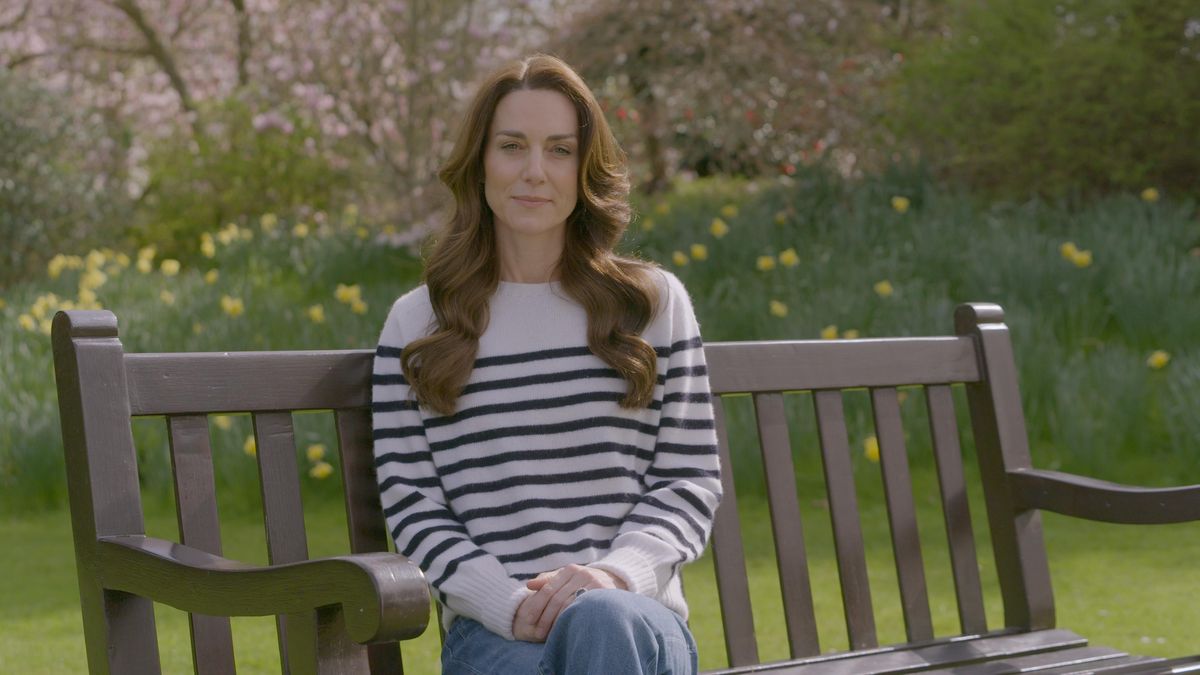
T&C understands that no decisions have been made on any specific engagements in the coming months, including the upcoming Japan State Visit or Wimbledon , the annual Grand Slam tennis tournament that Kate regularly attends . Kate will attend events when she feels able to, with the support and guidance of her doctors. Kensington Palace did not comment on Kate's attendance at any specific upcoming events, and they are not putting a time frame on her returning to a schedule of public engagements or a full return to royal duties.
In the meantime, Kate said she has begun to work from home a little, which includes receiving briefings from her teams at Kensington Palace, The Royal Foundation, and the Centre for Early Childhood. She has also begun to take meetings related to her work and projects.
King Charles, who is also dealing with his own cancer battle , returned to royal engagements last month, and has since been carrying out a scaled-back diary. "Forthcoming engagements will be adapted where necessary to minimise any risks to His Majesty’s continued recovery," Buckingham Palace said at the time.

Everything We Know About Kate Middleton's Cancer Diagnosis
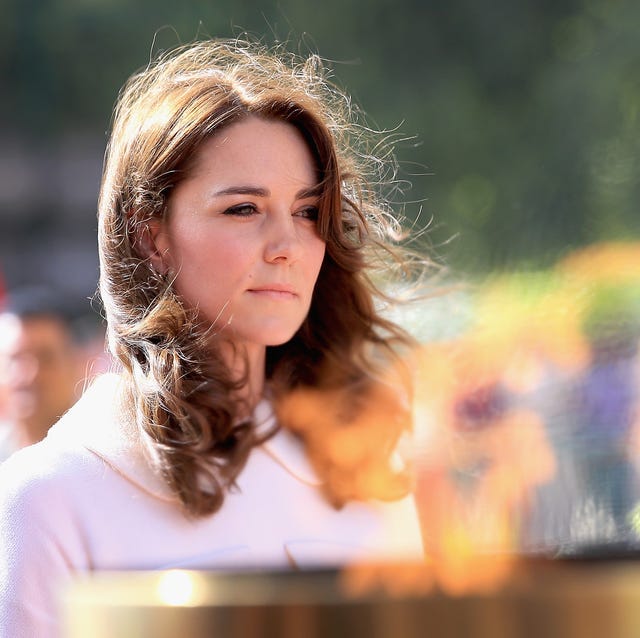
Why Kate Middleton Isn't Sharing What Type of Cancer She Has

When Will Kate Middleton Return to Royal Duties?
Emily Burack (she/her) is the Senior News Editor for Town & Country, where she covers entertainment, culture, the royals, and a range of other subjects. Before joining T&C, she was the deputy managing editor at Hey Alma , a Jewish culture site. Follow her @emburack on Twitter and Instagram .
@media(min-width: 40.625rem){.css-1jdielu:before{margin:0.625rem 0.625rem 0;width:3.5rem;-webkit-filter:invert(17%) sepia(72%) saturate(710%) hue-rotate(181deg) brightness(97%) contrast(97%);filter:invert(17%) sepia(72%) saturate(710%) hue-rotate(181deg) brightness(97%) contrast(97%);height:1.5rem;content:'';display:inline-block;-webkit-transform:scale(-1, 1);-moz-transform:scale(-1, 1);-ms-transform:scale(-1, 1);transform:scale(-1, 1);background-repeat:no-repeat;}.loaded .css-1jdielu:before{background-image:url(/_assets/design-tokens/townandcountrymag/static/images/diamond-header-design-element.80fb60e.svg);}}@media(min-width: 64rem){.css-1jdielu:before{margin:0 0.625rem 0.25rem;}} Royal Family News @media(min-width: 40.625rem){.css-128xfoy:before{margin:0.625rem 0.625rem 0;width:3.5rem;-webkit-filter:invert(17%) sepia(72%) saturate(710%) hue-rotate(181deg) brightness(97%) contrast(97%);filter:invert(17%) sepia(72%) saturate(710%) hue-rotate(181deg) brightness(97%) contrast(97%);height:1.5rem;content:'';display:inline-block;background-repeat:no-repeat;}.loaded .css-128xfoy:before{background-image:url(/_assets/design-tokens/townandcountrymag/static/images/diamond-header-design-element.80fb60e.svg);}}@media(min-width: 64rem){.css-128xfoy:before{margin:0 0.625rem 0.25rem;}}

Charles’s Foundation's Partnership With Chanel

Princess Charlene Carries Olympic Torch

Princess Beatrice Wore Two Patterned Dresses

Gwyneth Paltrow Reacts to Kate at Trooping

Meet Princess Anne's Granddaughter Lena Tindall
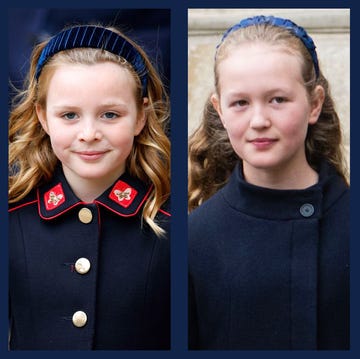
Meet Princess Anne's Grandchildren

The Significance of Lady Gabriella at Royal Ascot

All the Best Photos of Royal Ascot 2024

What It's Really Like to Attend Royal Ascot
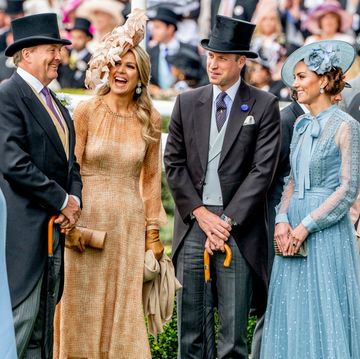
How to Get into the Royal Enclosure at Ascot

The Royal Family on Garter Day 2024
What Does My UPS Tracking Status Mean?
Each time your package is scanned, shipment movement information is captured. Here's a list of what those common tracking statuses mean.
Label Created
Shipped/on the way, out for delivery, delivered to a ups access point, transferred to post office for delivery.
We’ve received the shipment details and billing information from the sender of the shipment. Once we have possession of the shipment and have it moving within our network, the status will be updated.
We’ve received the shipment, it’s moving through our network and it now has a scheduled delivery date. Shipments can stay in this status until it’s out for final delivery. Keep in mind, if shipments are traveling long distances, they likely won’t be scanned again until they reach their destination hub.
The local UPS facility has received the shipment and they’ve dispatched it to a driver for its final delivery. Unless the sender has elected for a time-definite air delivery service, packages are typically delivered between 9 a.m. and 7 p.m. (occasionally later) to residences, and by close of business for a commercial address.
We’ve delivered the shipment to its final destination, with a timestamp of the delivery recorded. If the shipment doesn’t require a signature, our driver will try and find a safe place to leave the shipment to keep it out of plain sight or harmful weather. This may include a front porch, side door, back porch or garage area, among others.
A selected UPS Access Point location has received the shipment and it’s ready to be picked up at the receiver’s convenience.
The sender requested the shipment be transferred to the local post office to finish the delivery. To be safe, allow for an extra day or two for final delivery.
The shipment is in the UPS network, but there was an unexpected error that may result in a change in the scheduled delivery date. The reason for the exception will be noted in the Shipment Progress section of the Tracking Detail page. When the delivery date changes, the tracking status will show the new date.
Can’t Find What You’re Looking For?
We’re here to help. Use our virtual assistant, or find the customer service route best suited for you.

IMAGES
COMMENTS
Every tour package sold by a vendor has a quantifiable cost. To produce profit the price paid by the tourists must be greater than the agency's cost. 6. Tour Brochure. The tour package is an intangible product which has to be purchased by the tourists/clients without inspection and sometimes even without adequate knowledge.
Transportation: Package tours often include round-trip transportation from the traveler's home to the destination. This may involve flights, train tickets, bus transfers, or other modes of transportation. Accommodation: Accommodation is a crucial part of any package tour. Travelers are typically provided with pre-booked hotel rooms, resorts, or ...
A package tour, package vacation, or package holiday comprises transport and accommodation advertised and sold together by a vendor known as a tour operator.Other services may be provided such as a rental car, activities or outings during the holiday.Transport can be via automobile, buses, charter airline, and may also include travel between areas as part of the holiday.
A package tour refers to a pre-arranged travel itinerary or vacation package that combines various travel components into a single purchase. These components typically include transportation, accommodation, activities, meals, and sometimes additional services, all bundled together and sold as a complete package by a tour operator or travel ...
Package tourism is when elements of a holiday are grouped together and sold as a package by a tour operator at an inclusive price. Typically, a package holiday will include the three core elements of; transport (e.g. flights), transfer (e.g. coach or car) and accommodation (e.g. hotel). Package tourism is traditionally associated with the ...
Travel Agents: Tap into their network and offer your packages to a wider audience. Online Travel Agents (OTAs): Increase your digital footprint and customer reach. Local Businesses: Collaborate for cross-promotion; think hotels offering your tour brochures in their lobbies. Wholesalers: They can package your tours with other services for a ...
Tour Package Example. As with this example, when people think of tour packages, they often think of packages that include services from multiple vendors. Tour packages can, however, consist of offerings from a single tour provider. Rezgo's tour packaging system is designed to help you create and promote travel packages of your own tour ...
A trip builder module simplifies the process, giving you more time to invest in growing your travel business. Learn how to build a high-value tour package with TripMatrix Software in 5 easy steps. 1. Identify the Customer's Needs. The first and most crucial step is to identify the customer's needs.
Remember to include special interest groups and individuals in your marketing - for example, sports, festivals, and arts. 5. Complementary Product Packaging. Partnering with other tour operators who offer complementary products is a smart way to reduce your promotion costs while making your package more appealing.
package tour: [noun] a group of services related to travel or vacations that are sold together for one price.
Choose your destination and suppliers. 3. Design your itinerary and pricing. 4. Create your branding and marketing materials. 5. Promote your package and generate bookings. 6. Monitor and evaluate ...
At $18.3 billion in 2008, packaged travel represents a substantial piece of the total U.S. travel market, but it is also one of the more complex and fragmented segments as well. In its simplest form, packaging represents the bundling of travel products and reselling them as a combined single product, called a package or tour. A consumer (or travel agent) generally books the package in a single ...
PACKAGE TOUR definition: 1. a holiday at a fixed price in which the travel company arranges your travel, hotels, and…. Learn more.
Obviously, the answer depends on the intended market. Some tours offer a minimum of elements; others are all-inclusive. Let's take a look at some options: Transportation. Most tours include transportation as part of the package. A fly/drive package combines air transportation and a car rental. An air/sea or fly/cruise combines air and ship ...
Veteran tour professionals and enthusiastic beginners alike find themselves on the same journey of cost calculation. From 1 PAX to 30 + 2 FOC, each row signifies an opportunity to tailor the ...
Definition of Tourism Product. Burkat and Medlik say tourism products to an array of integrated products, ... Even the tour package and the aircraft can't be consistent of equal standards because an aircraft can de-shape the travelling pleasure into a nightmare and a holiday seaside is ruined by the prolonged rainy spell.
Package tourism is formed when several tourists travel in an organized way by using pre-arranged services. It is produced, marketed, and sold by commercial tourism companies (tour operators/wholesalers) at an inclusive price. Package tourism was initially based on the mass production of standardized inclusive tours offered to tourists searching ...
In tourism marketing the word packaging takes on a new meaning. Tourism packaging doesn't involve a physical package surrounding a product. Instead, packaging is the process of putting together, or bundling, the core tourist product with additional services desired by tourists. The package is then promoted to tourists, who can then easily ...
Accommodation: A tour package typically includes accommodation in a hotel, resort, or other lodging facilities. The type of accommodation provided will depend on the tour package you select. Transportation: Transportation is another essential component of a tour package. It can include flights, trains, buses, and even private cars or vans.
Tour cost means the total cost incurred or attributed to a tour product or service. It is the sum total of costs incurred to create or formulate a tour package. Since tour is an assembled product, its costing involves bulk purchase. Therefore the cost of the tour packages is determined according to the client requirement or company strategy.
Define Package Tour Products. means package tour products which contain at least six tour elements; provided that (i) any trip by air, by train, by sea or by bus longer than 400 kilometers shall be counted as one element, (ii) any round trip of such nature shall be counted as two elements, (iii) one hotel room night shall be counted as one element and (iv) two hotel room nights shall be ...
Define Package Tour Product. means package tour products which contain at least six tour elements; provided that (i) any trip by air, by train, by sea or by bus longer than 400 kilometers shall be counted as one element, (ii) any round trip of such nature shall be counted as two elements, (iii) one hotel room night shall be counted as one element and (iv) two hotel room nights shall be counted ...
PACKAGE TOUR meaning: 1. a holiday at a fixed price in which the travel company arranges your travel, hotels, and…. Learn more.
Tomorrow, Kate Middleton plans to attend Trooping the Colour, the King's annual birthday parade, but Kensington Palace has made it clear that her appearance should not be viewed as a return to ...
The local UPS facility has received the shipment and they've dispatched it to a driver for its final delivery. Unless the sender has elected for a time-definite air delivery service, packages are typically delivered between 9 a.m. and 7 p.m. (occasionally later) to residences, and by close of business for a commercial address.